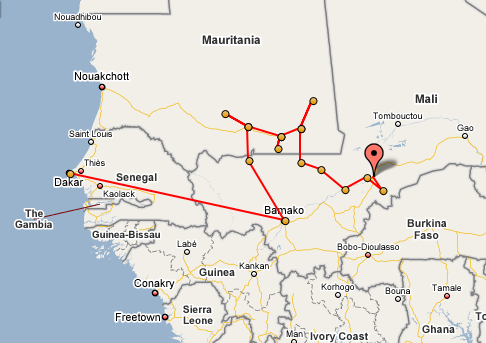After a bumpy taxi ride, we arrived at the village of Telli where my guide Chicago and I spent my first night in Dogon country. He had family in the area, although the local guides treated him like a foreigner. I met three French, one Belgian, one English, and one Dutch travelers at the small hotel there. I climbed a traditional wooden Dogon ladder to sleep on the terrace (roof) of one of the banco buildings. The breeze was a refreshing respite from the heat of the day and, because only other foreigners were there, we could remove our clothes to climb into our sleeping bags.
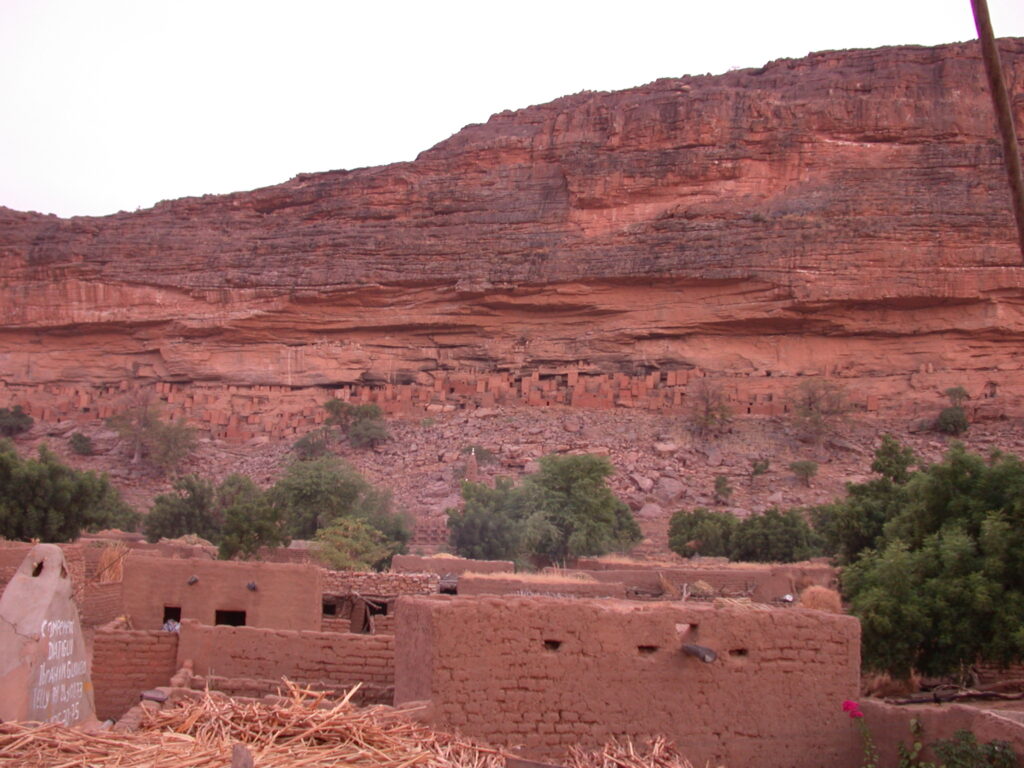
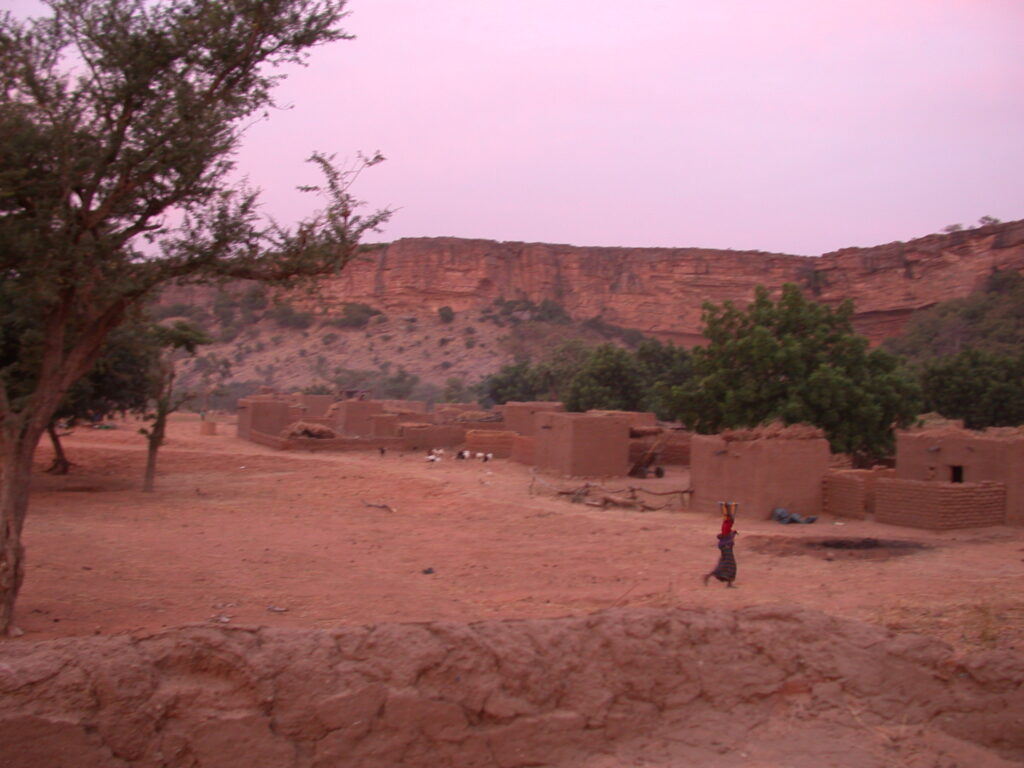
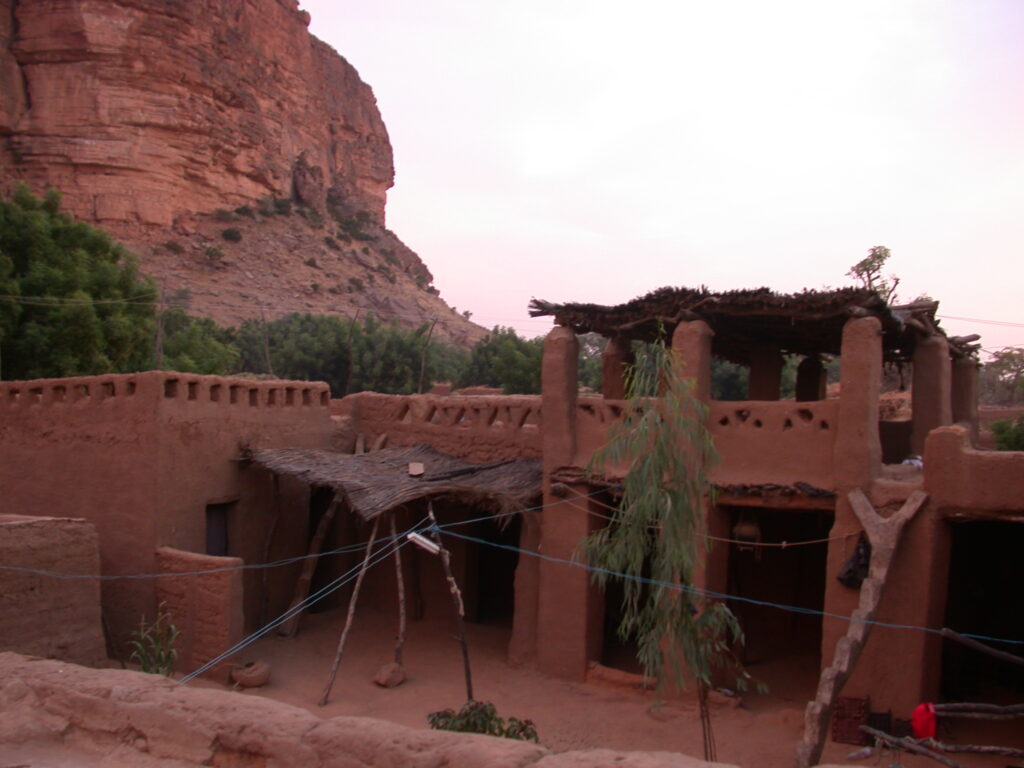
I spent much of the night fantasizing about Damien, the cute French guy sleeping next to me (the second French guy named Damien I’ve found attractive on this trip!). I was also attracted to the Belgian guy Tim. They were traveling with two French women, Melanie and Severine. We woke to a breakfast of bread and coffee or tea. The French and the Belgian continued on their way out from Dogon country, while David and Annemarie, the English and Dutch partnership, headed the same direction as Chicago and I. The first day included a visit to the ancient Tellem and old Dogon dwellings up on the falaise, the mountainous cliffs.
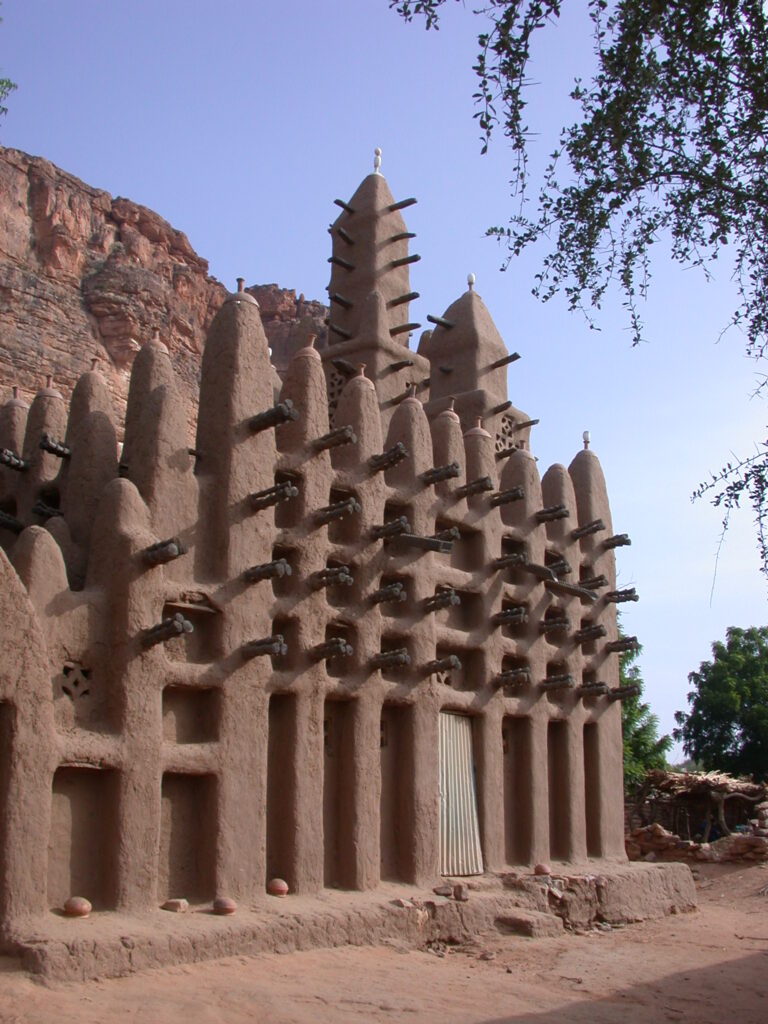
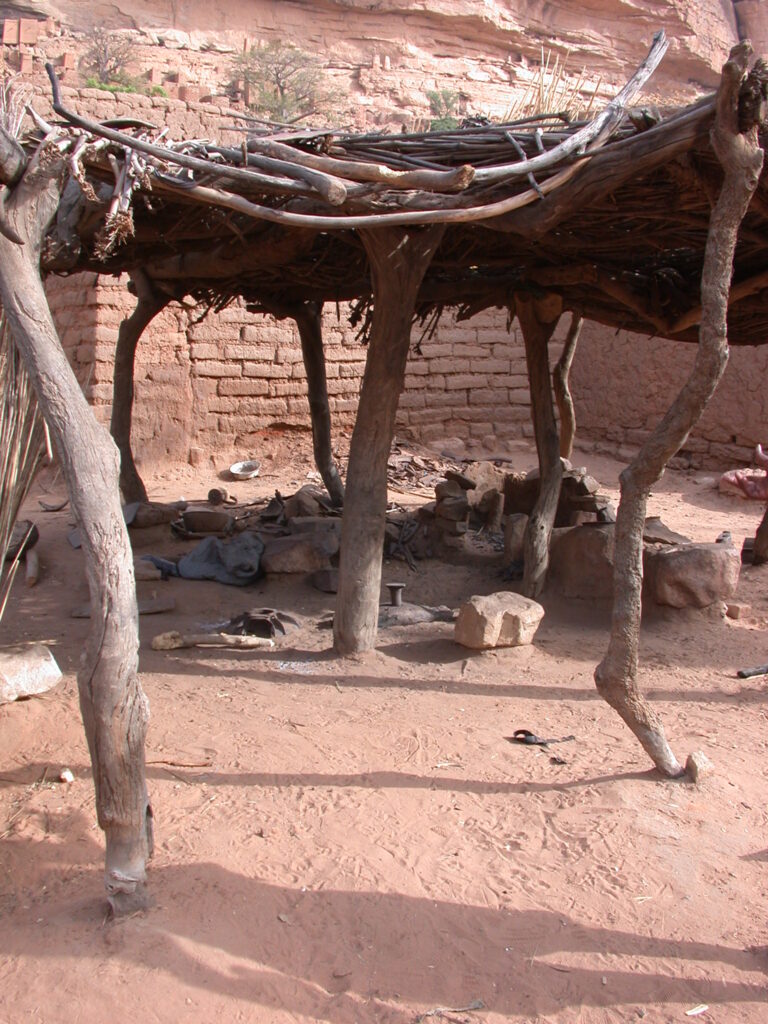
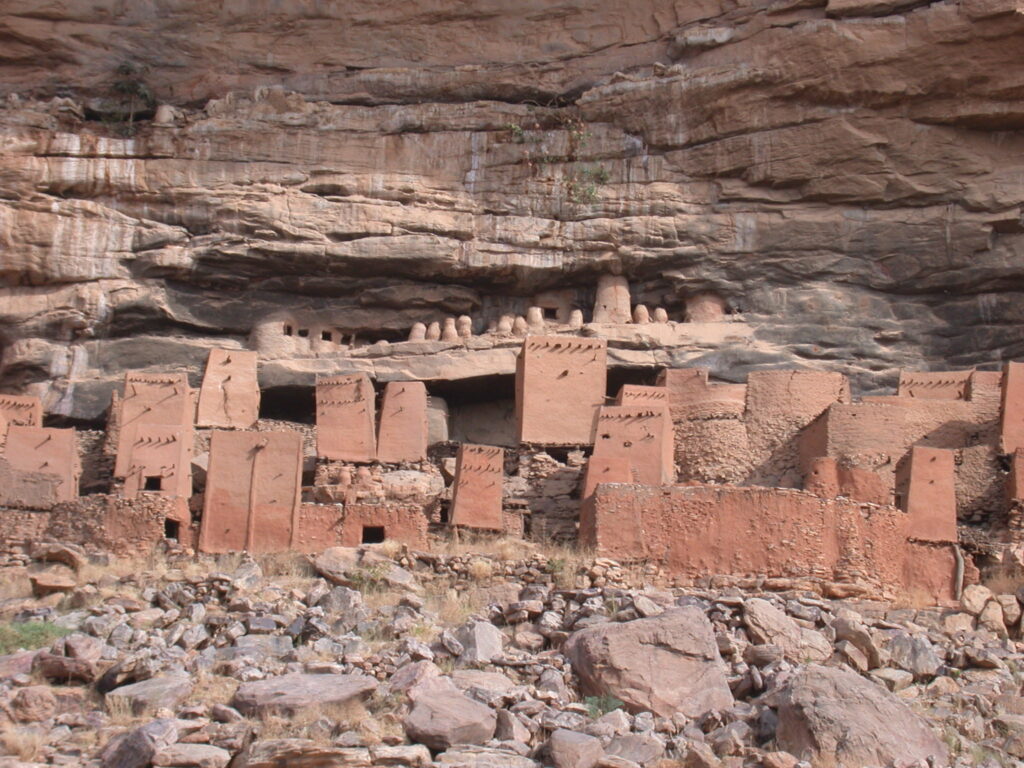
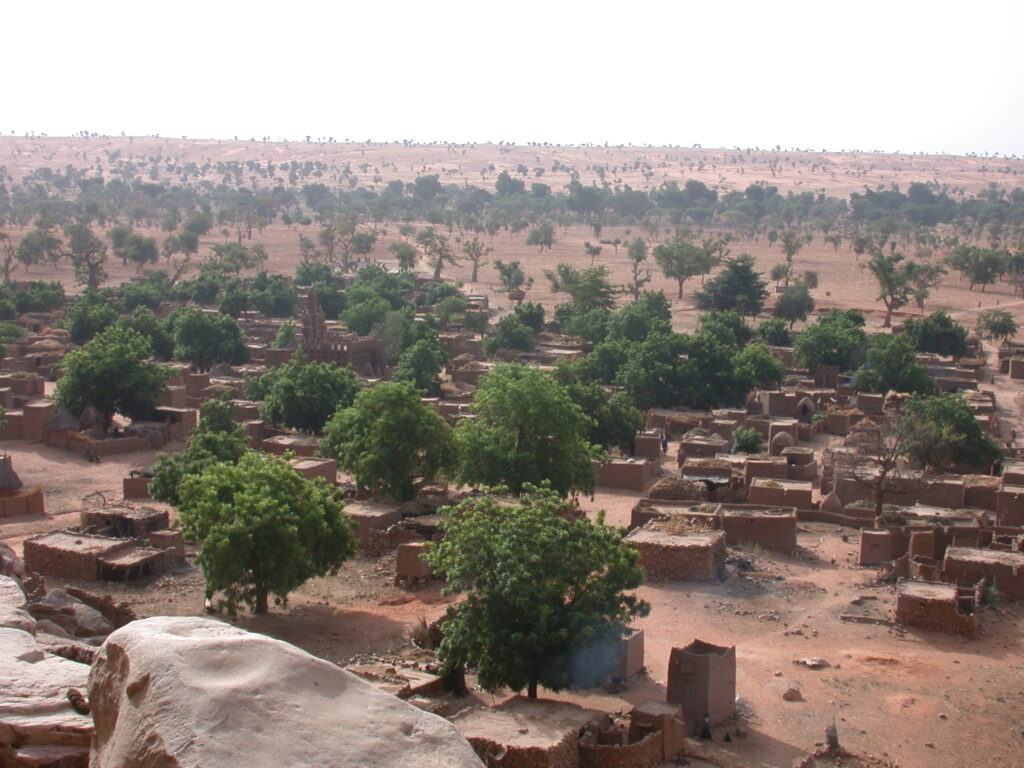
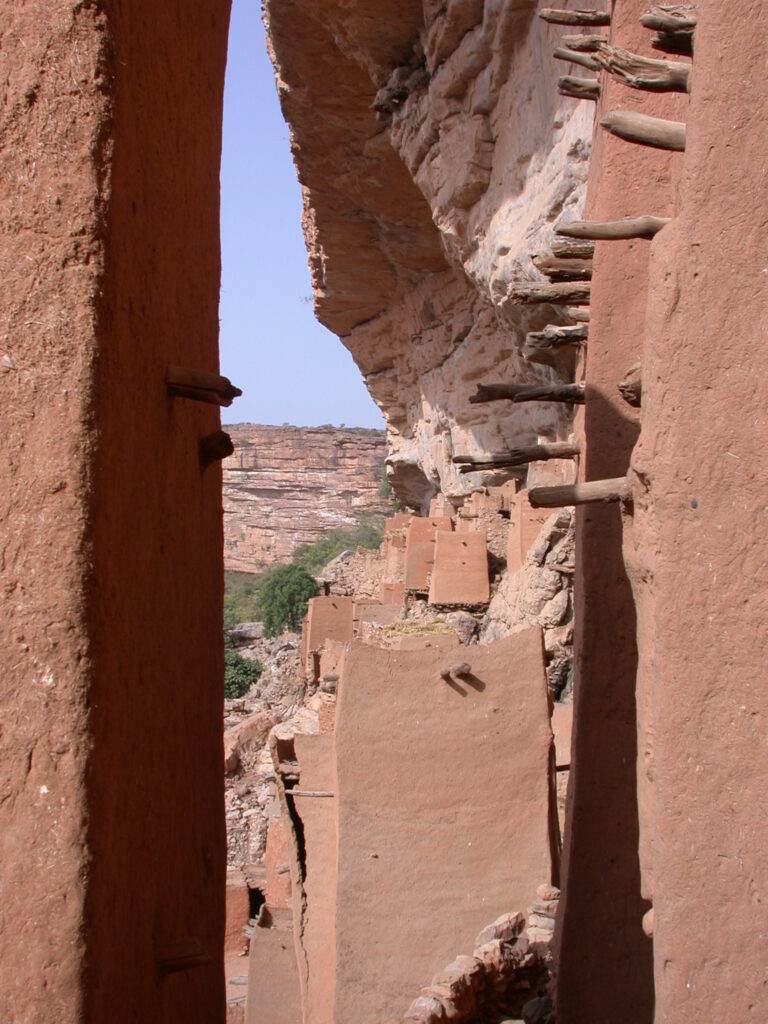
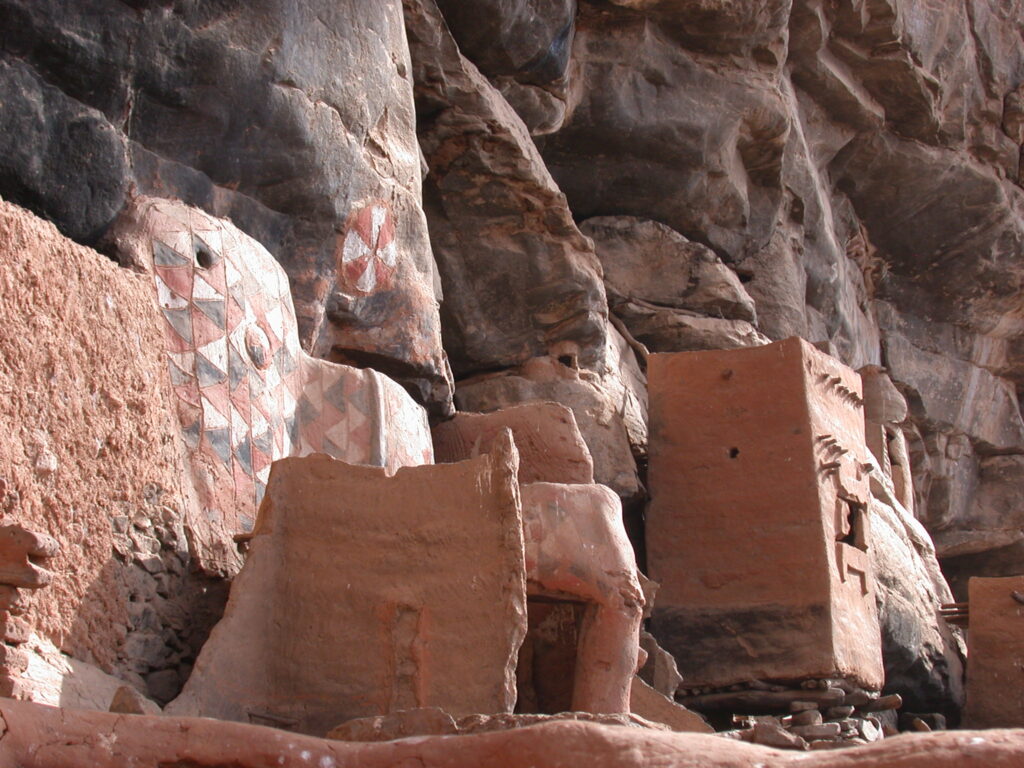
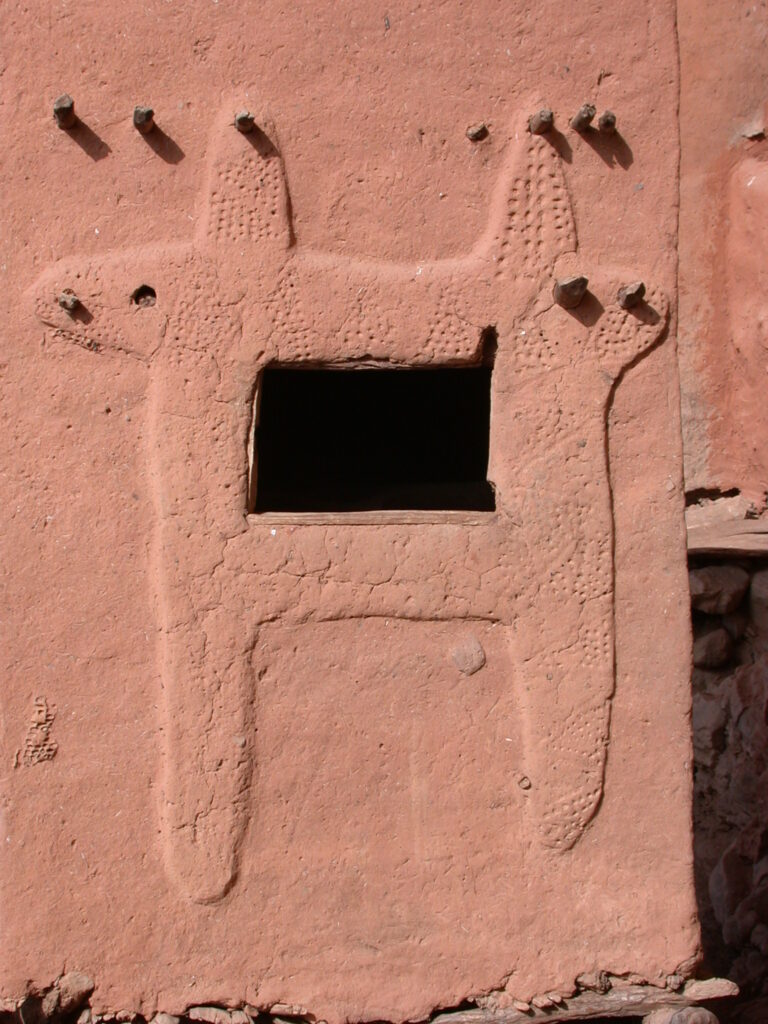
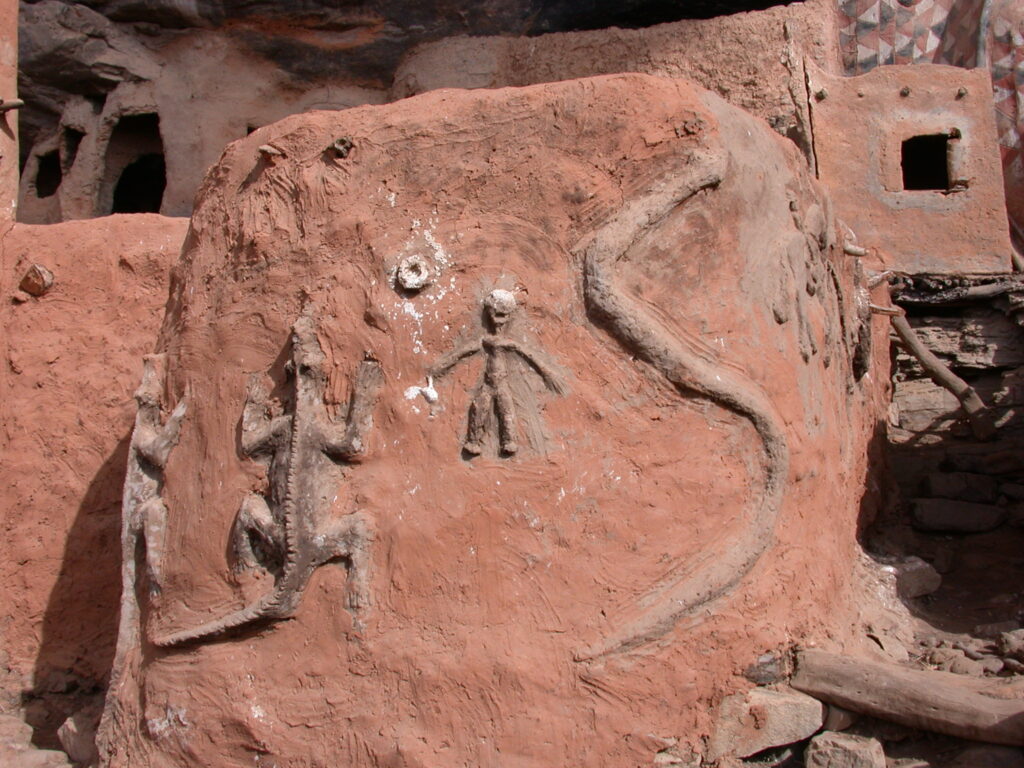
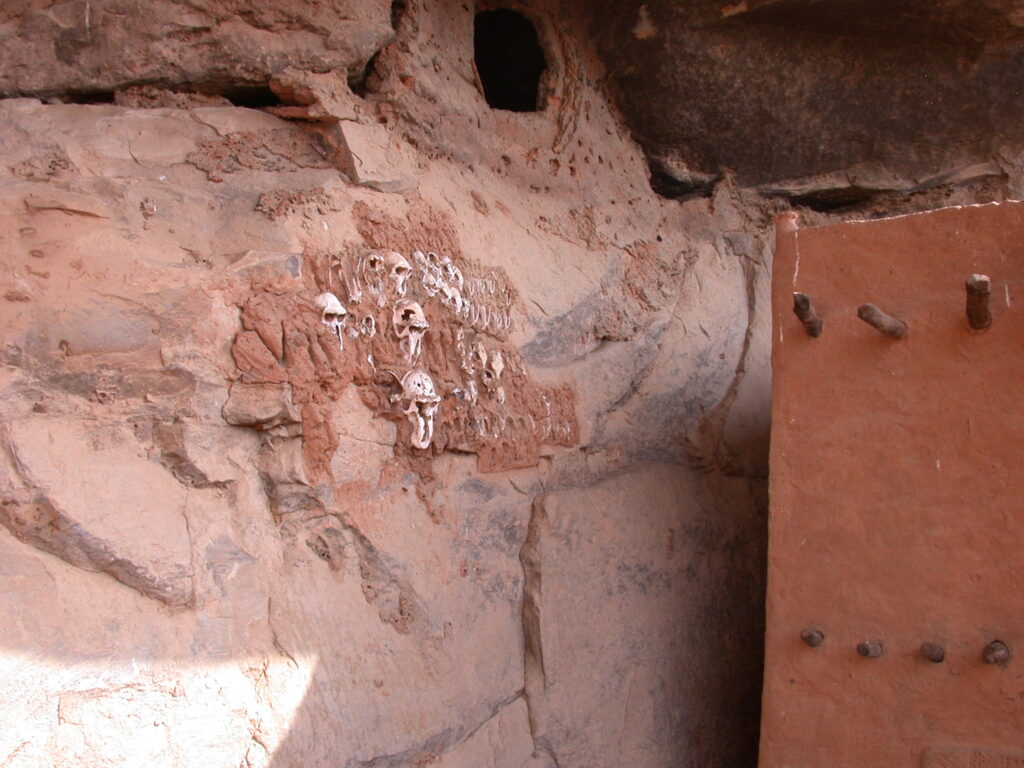
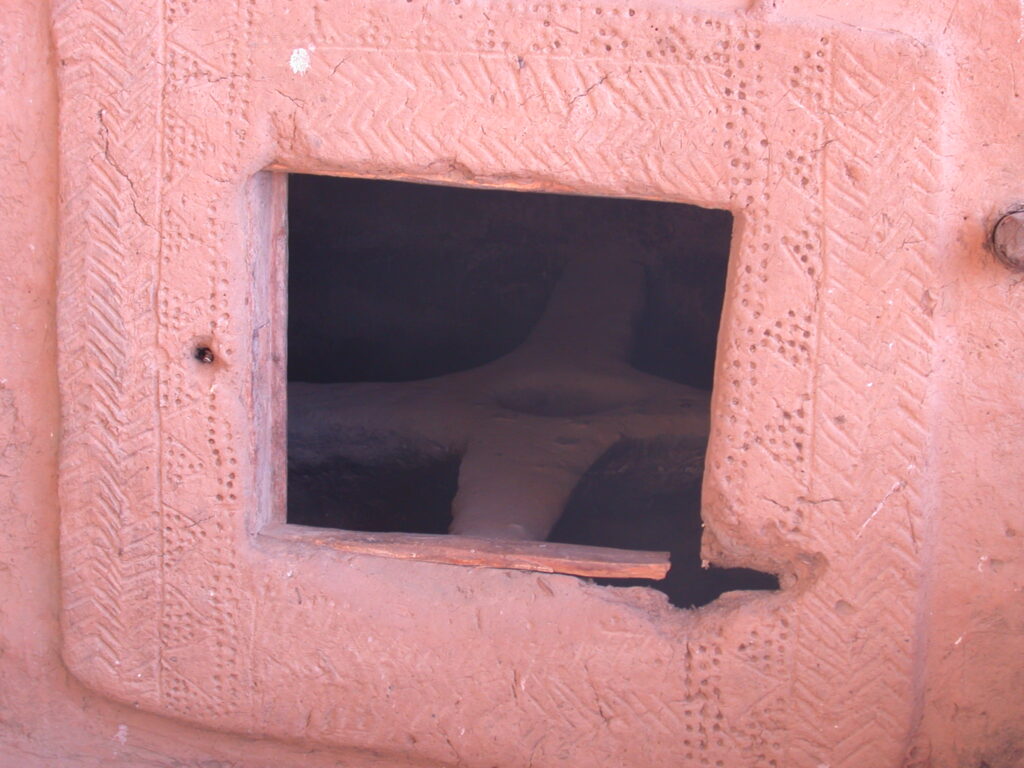
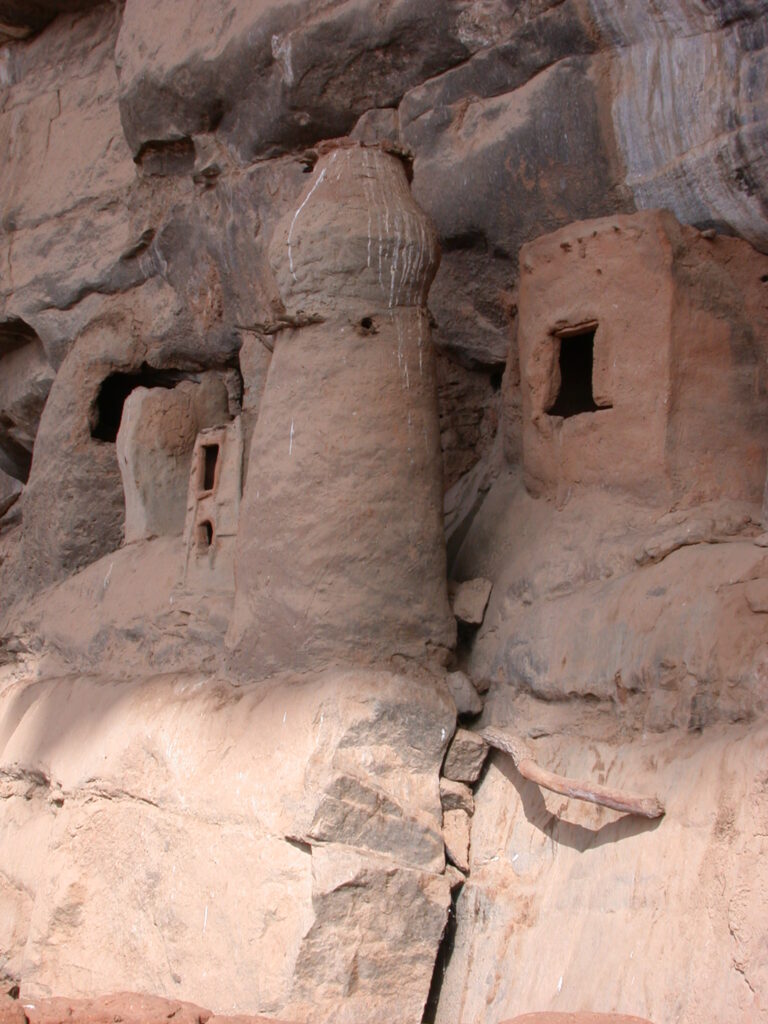
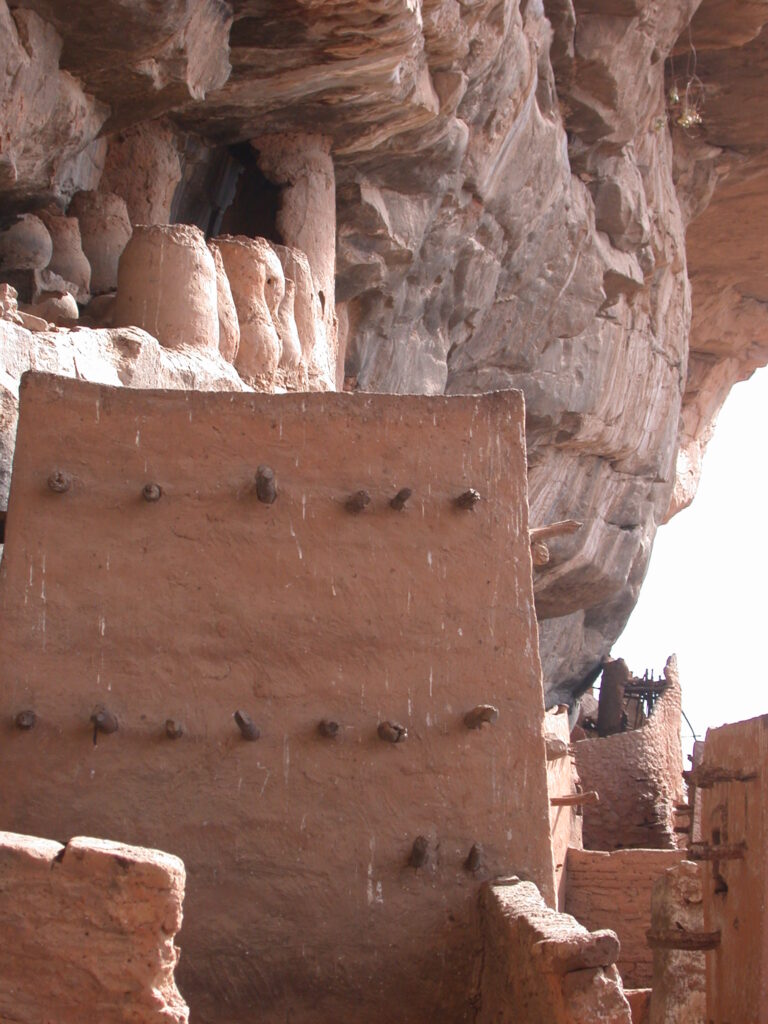
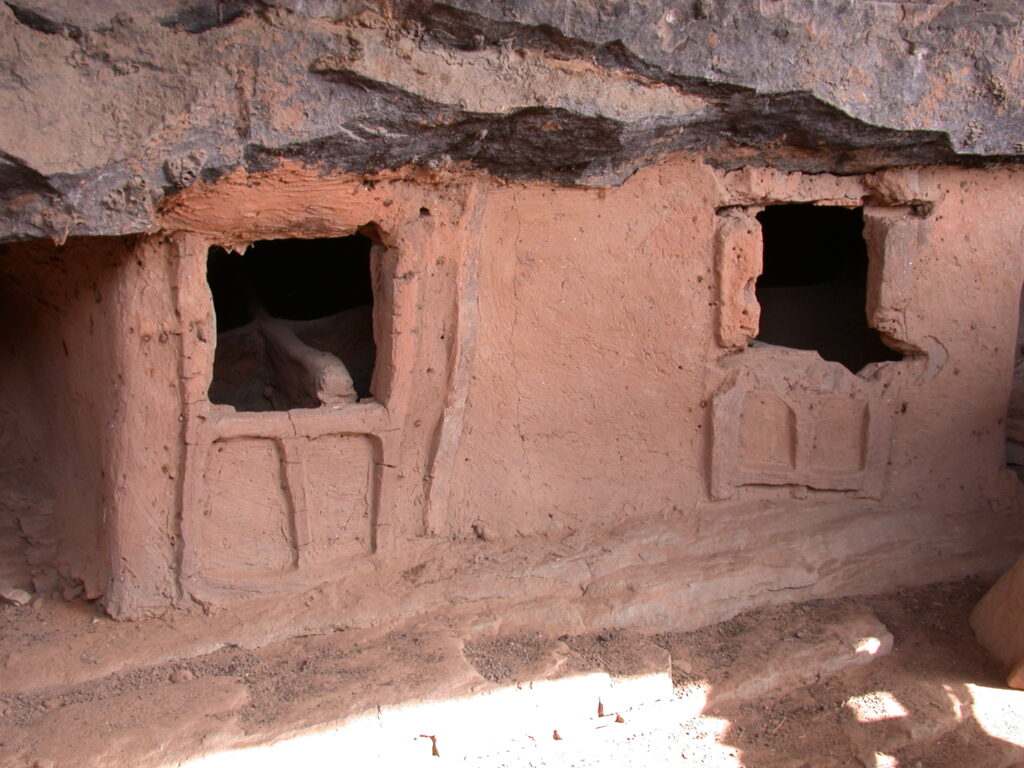
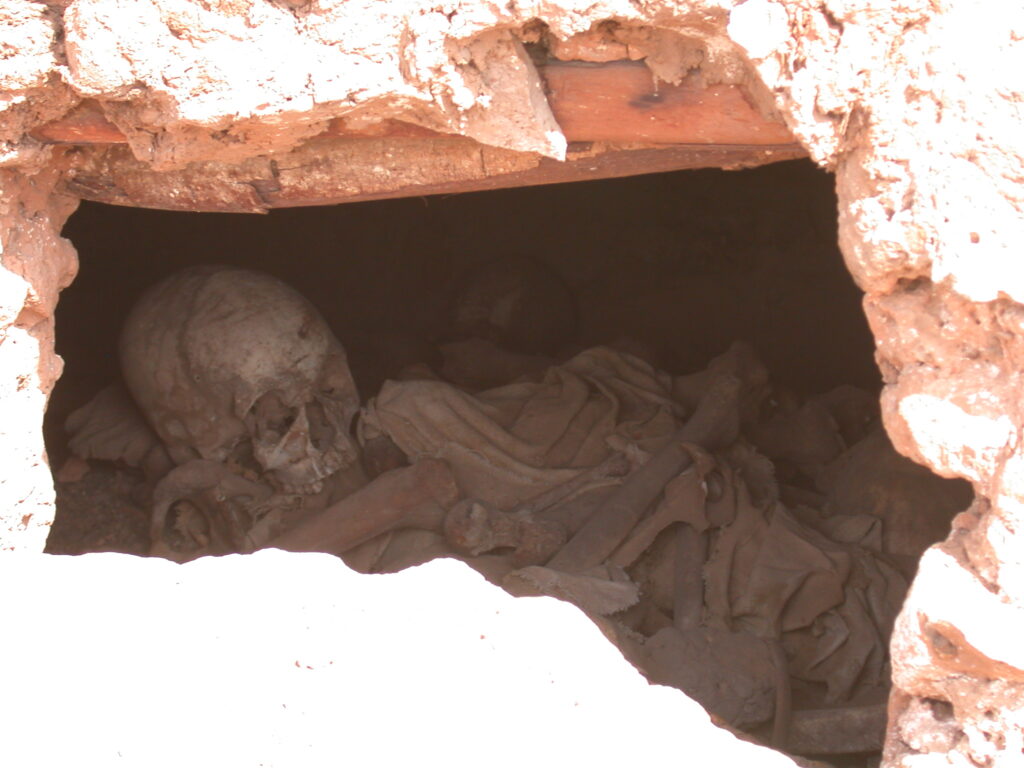
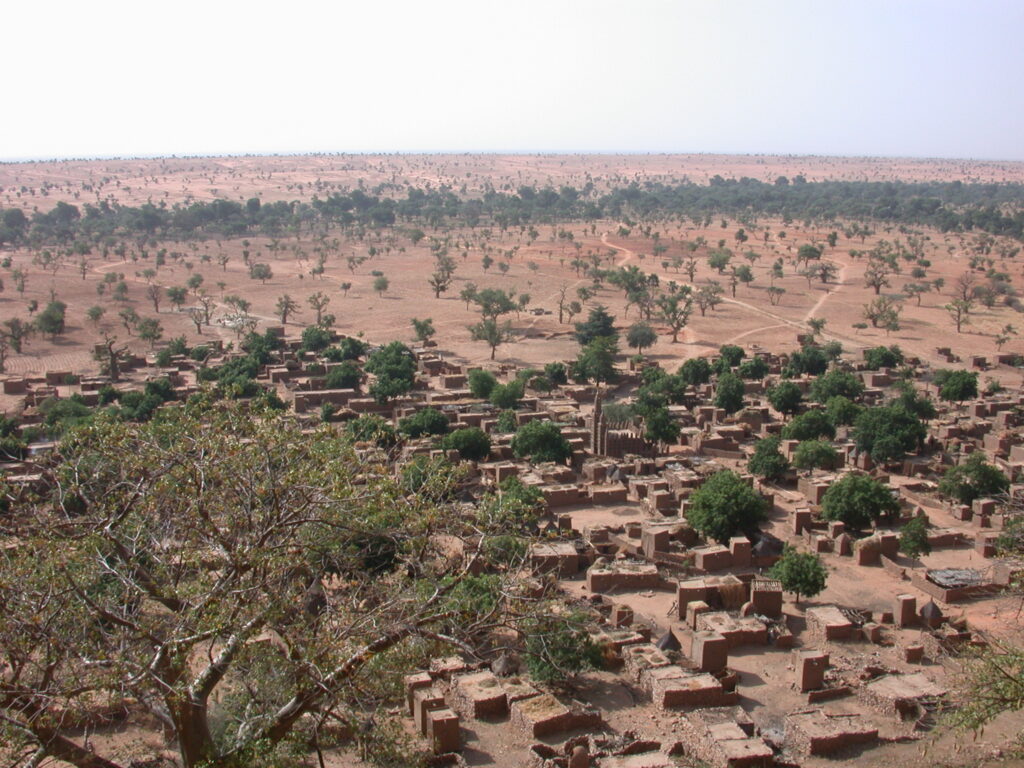
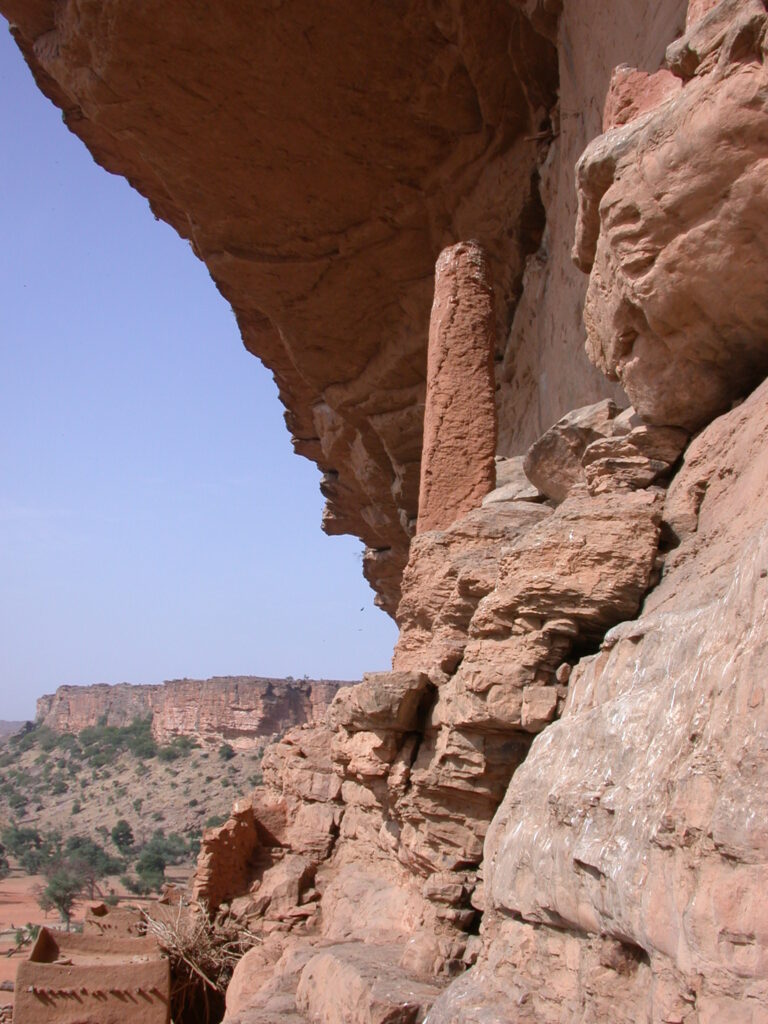
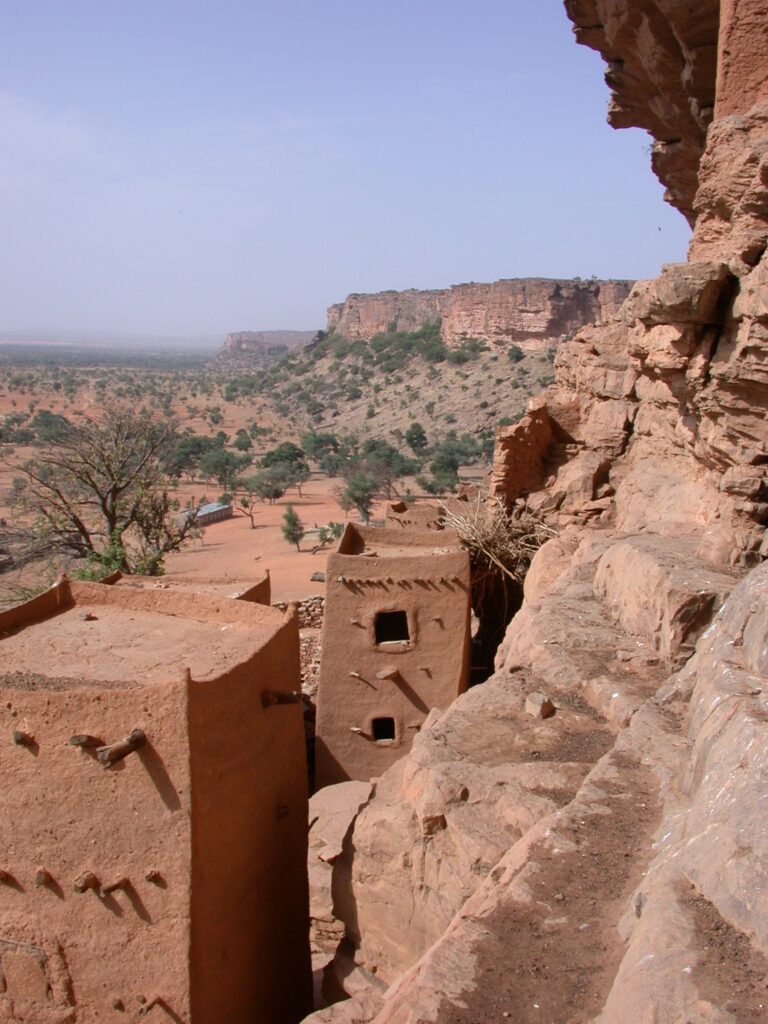
We then hiked around 4km during the morning to another village and then another hike of about 7km to the village of Ennde where we spent the next night.
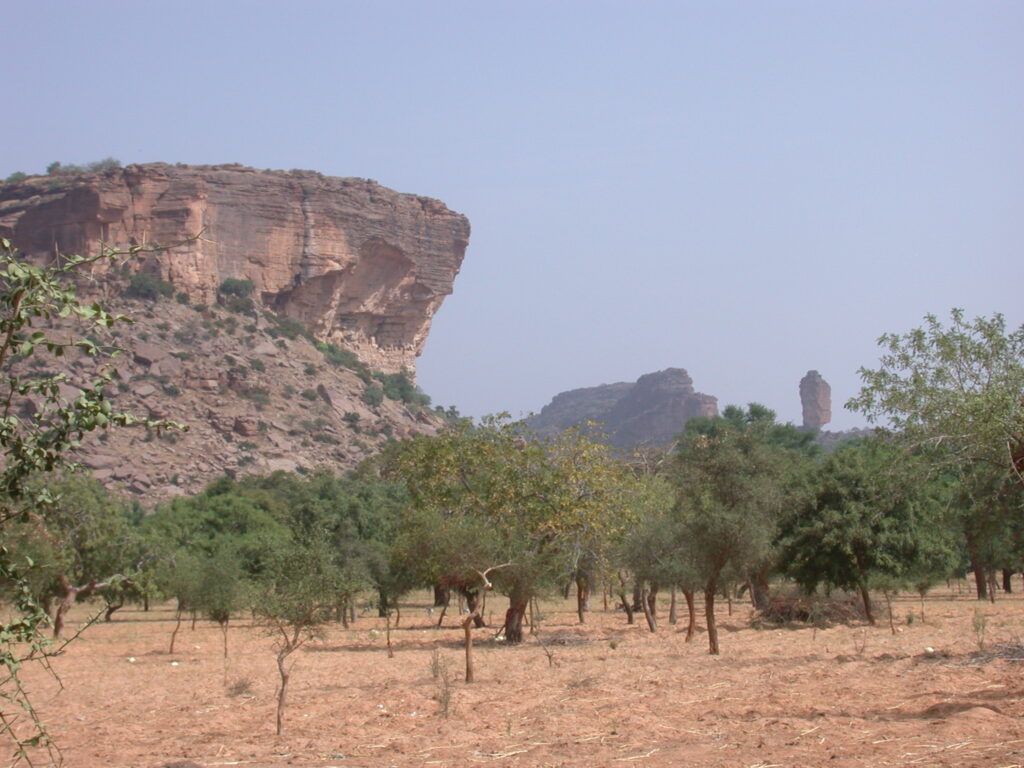
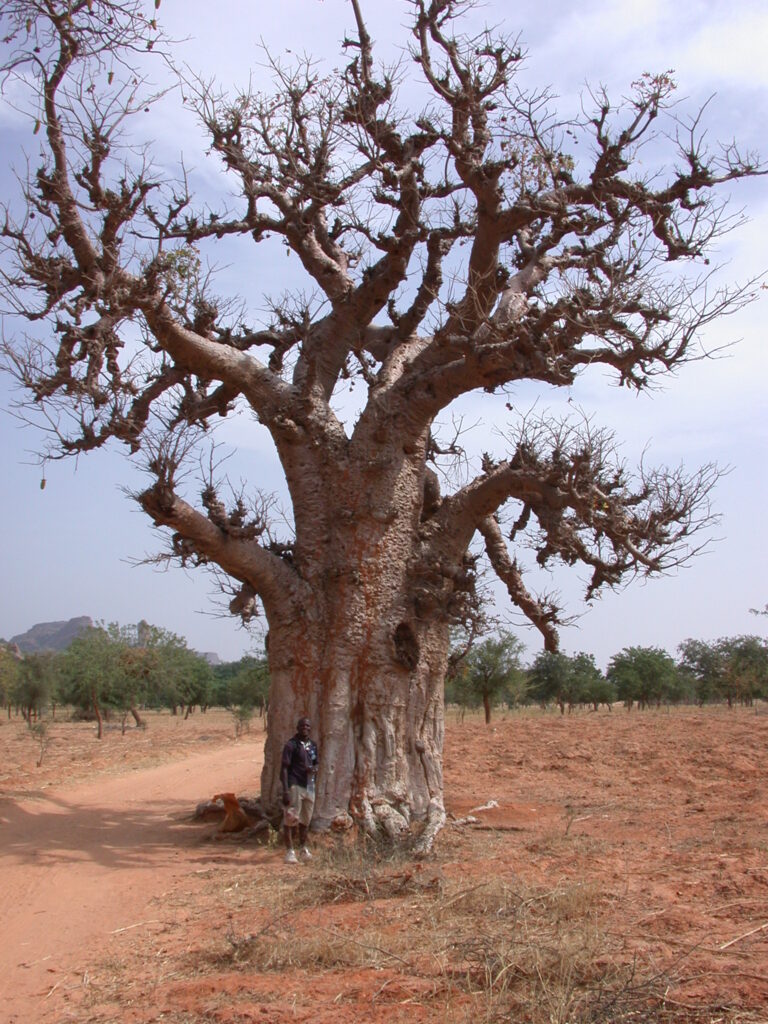
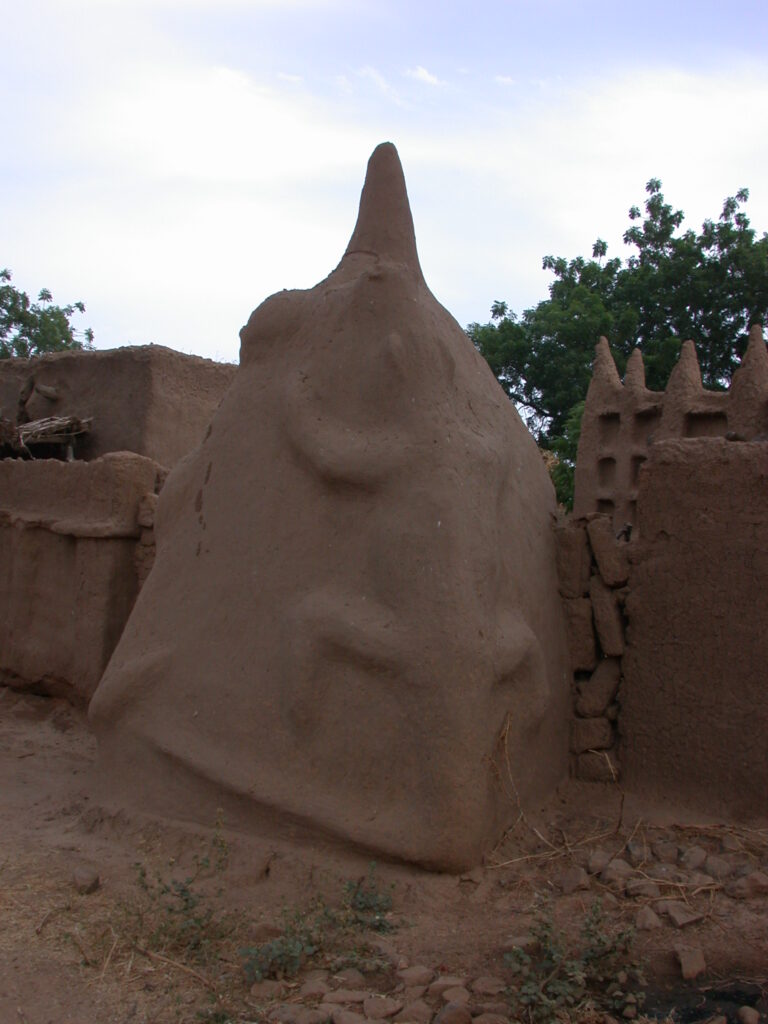
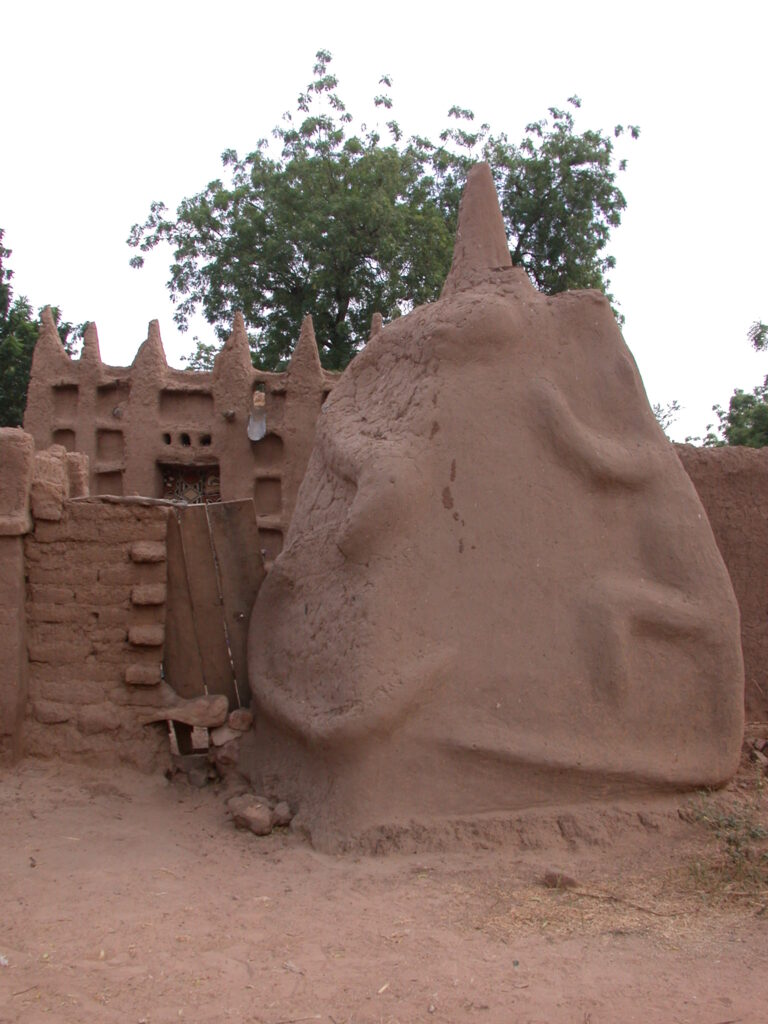
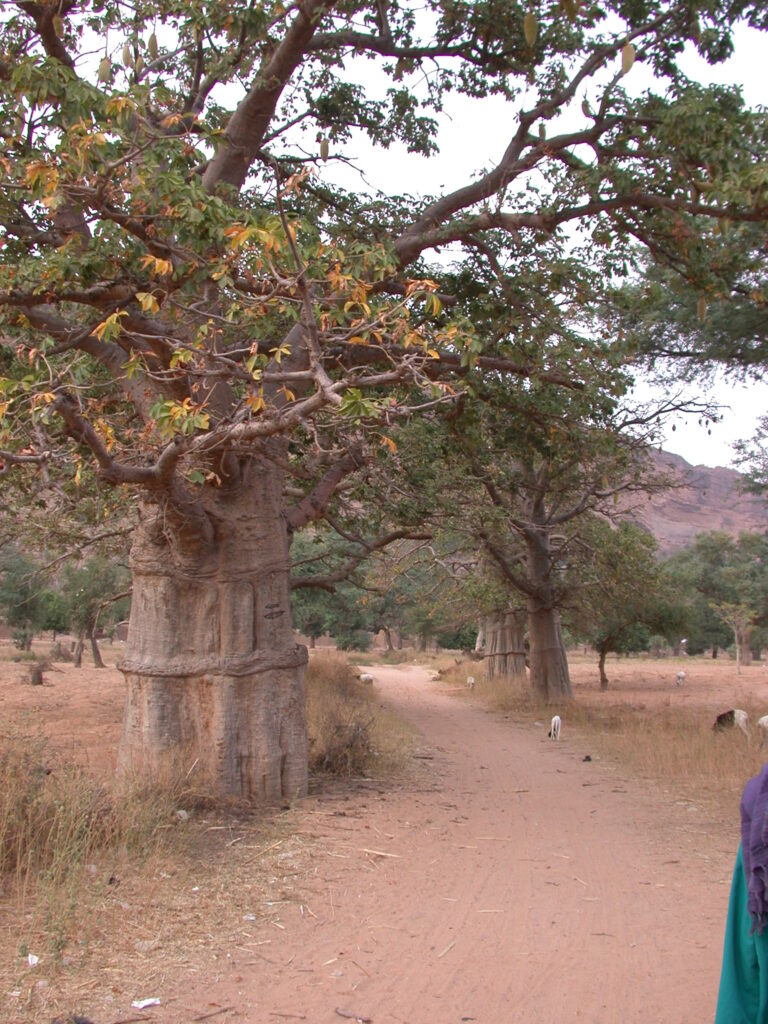
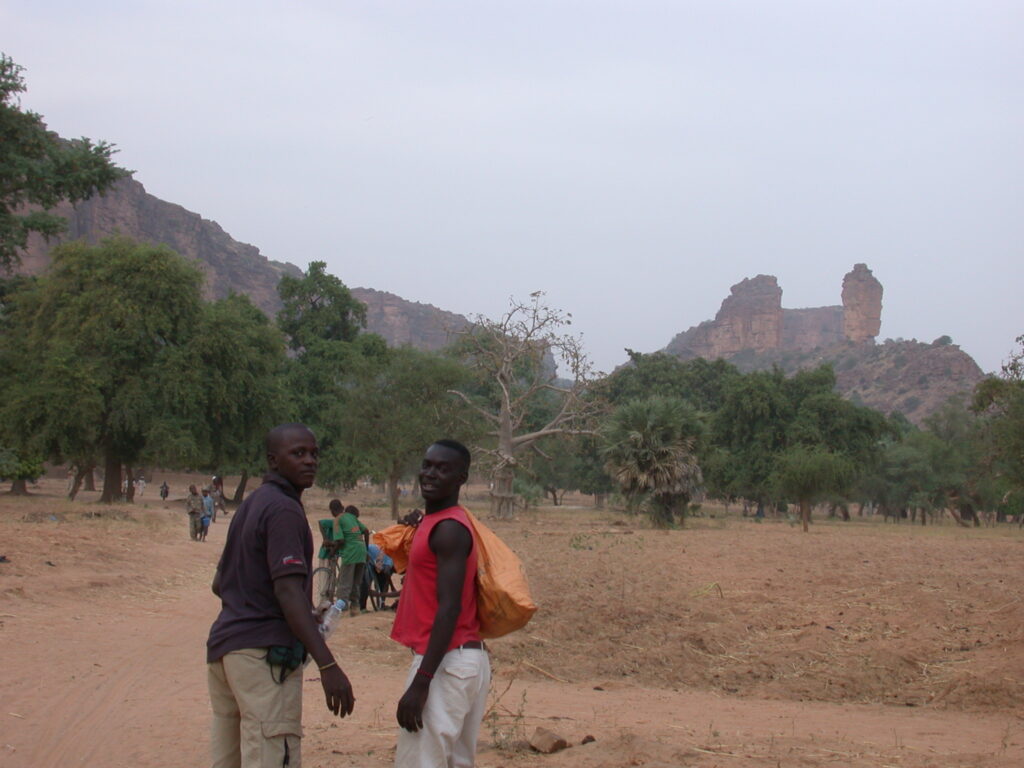
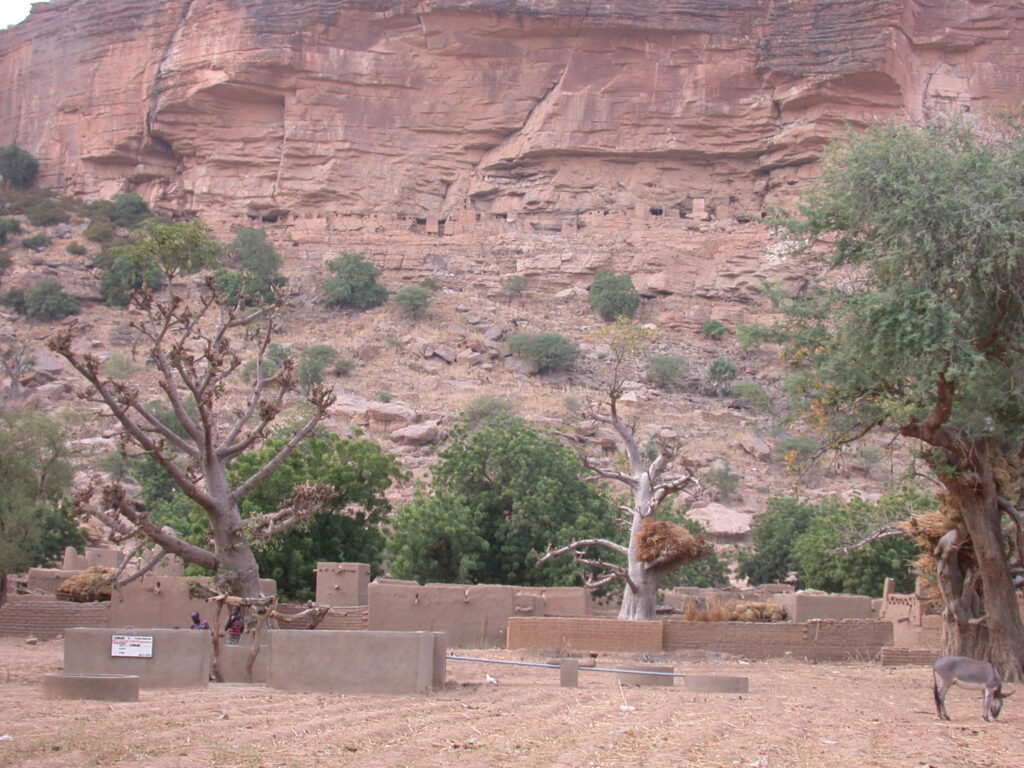
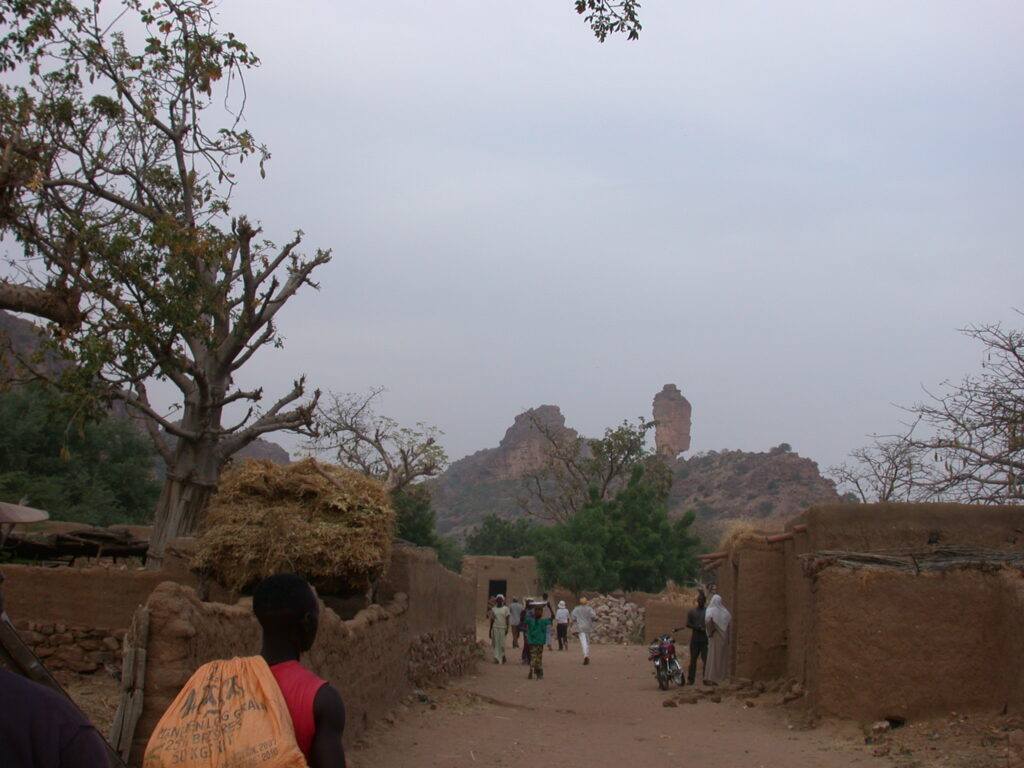
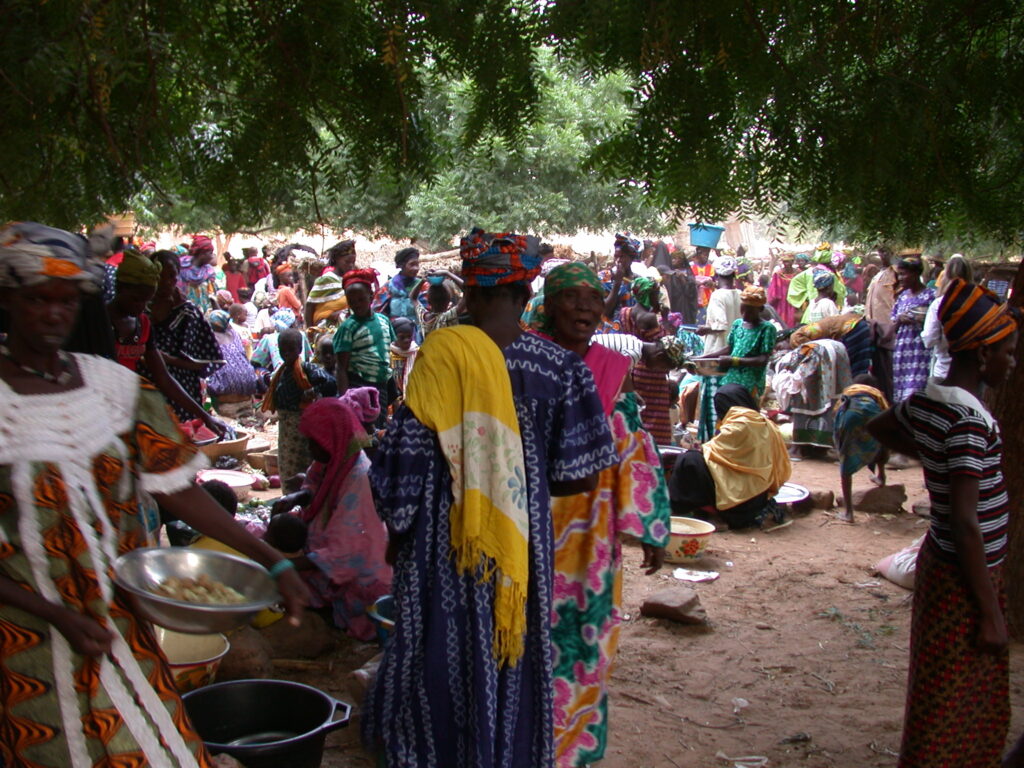
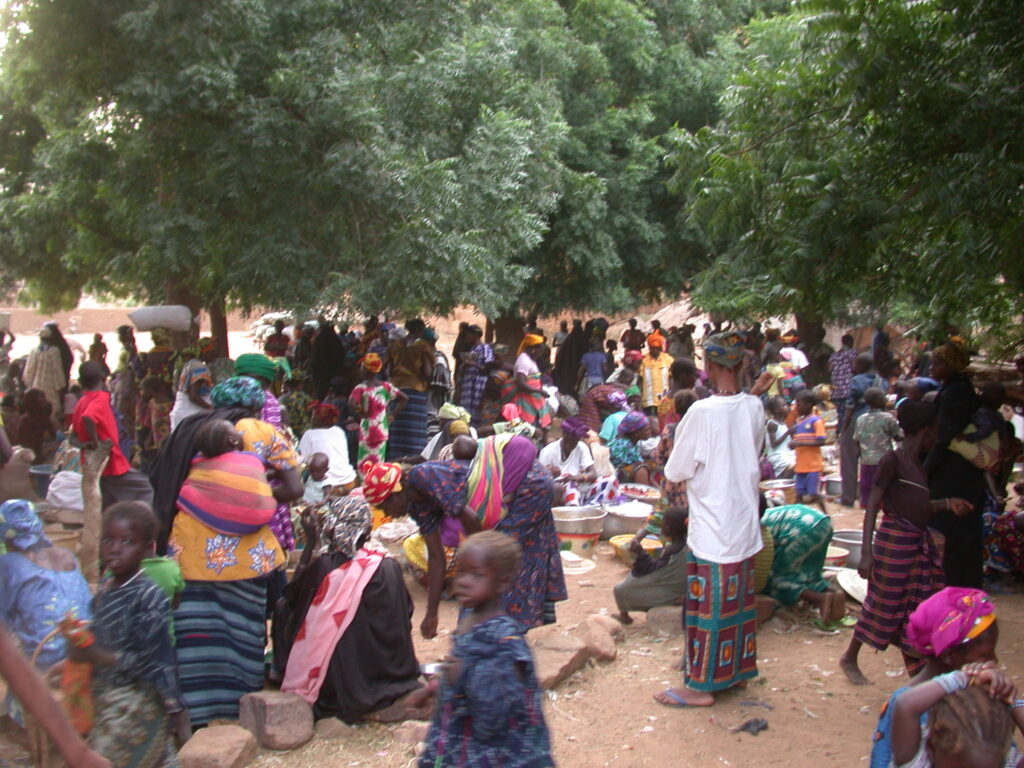
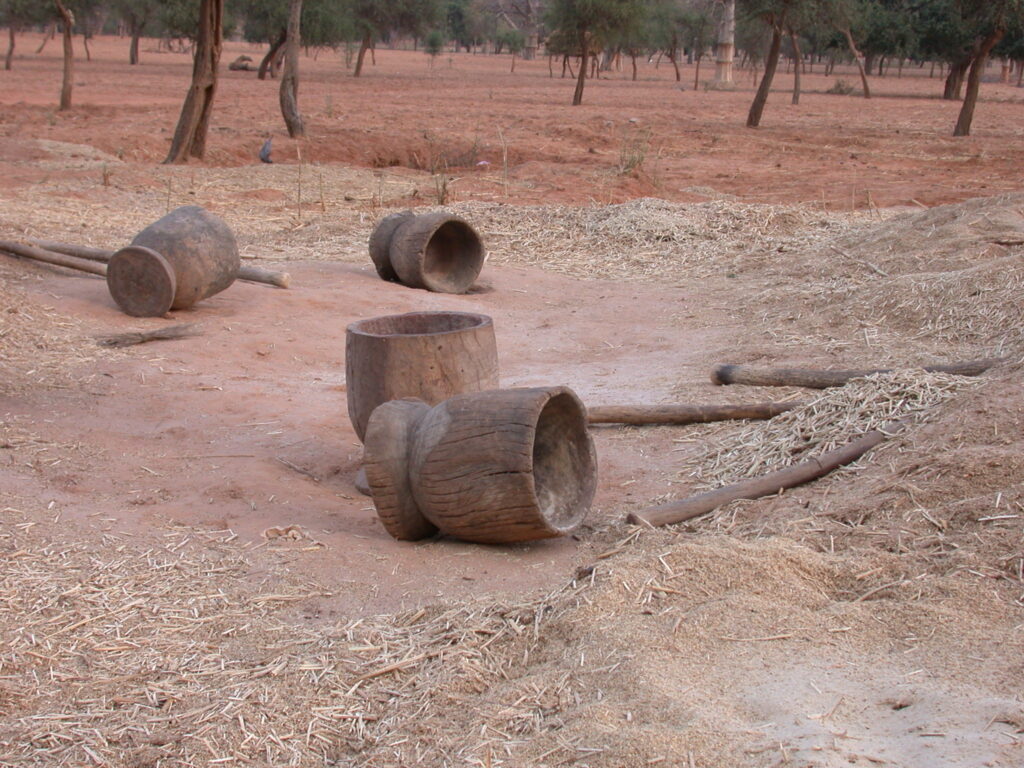
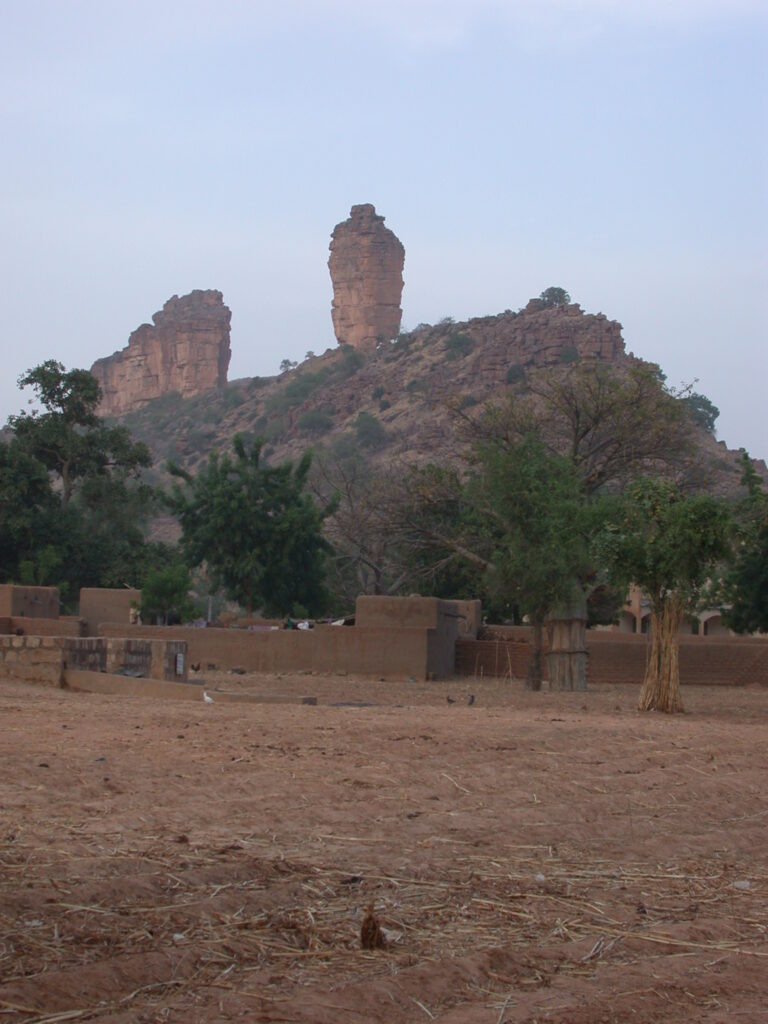
Much of the focus of the Dogon villages is the granaries, with separate ones for the women and the men. There are also cemeteries, ceremonial places with storage for masks, breweries, and dwellings. Dogon symbology of the sacred crocodile and the sacred tortoise are common. Dogon craftspeople carve wooden statues and doors and blacksmiths have high status still in their villages. Each village usually has a village chief and formerly had a hogon or spiritual leader. There is also usually one hunter, tasked with chasing game such as monkeys, serpents, and other animals.
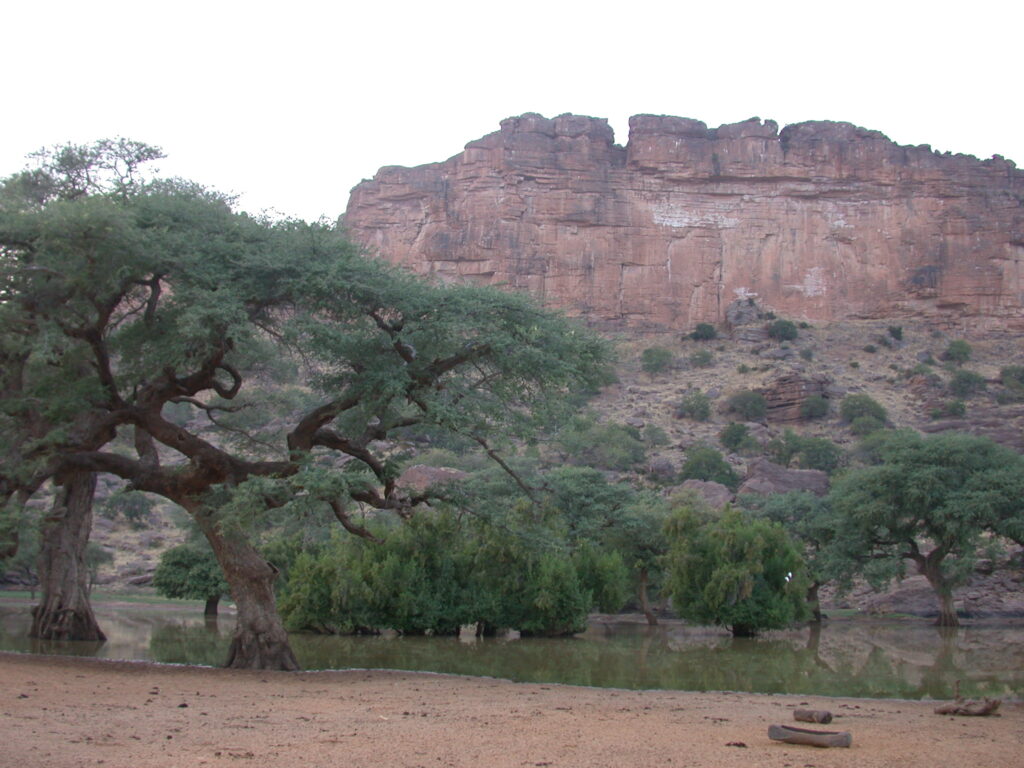
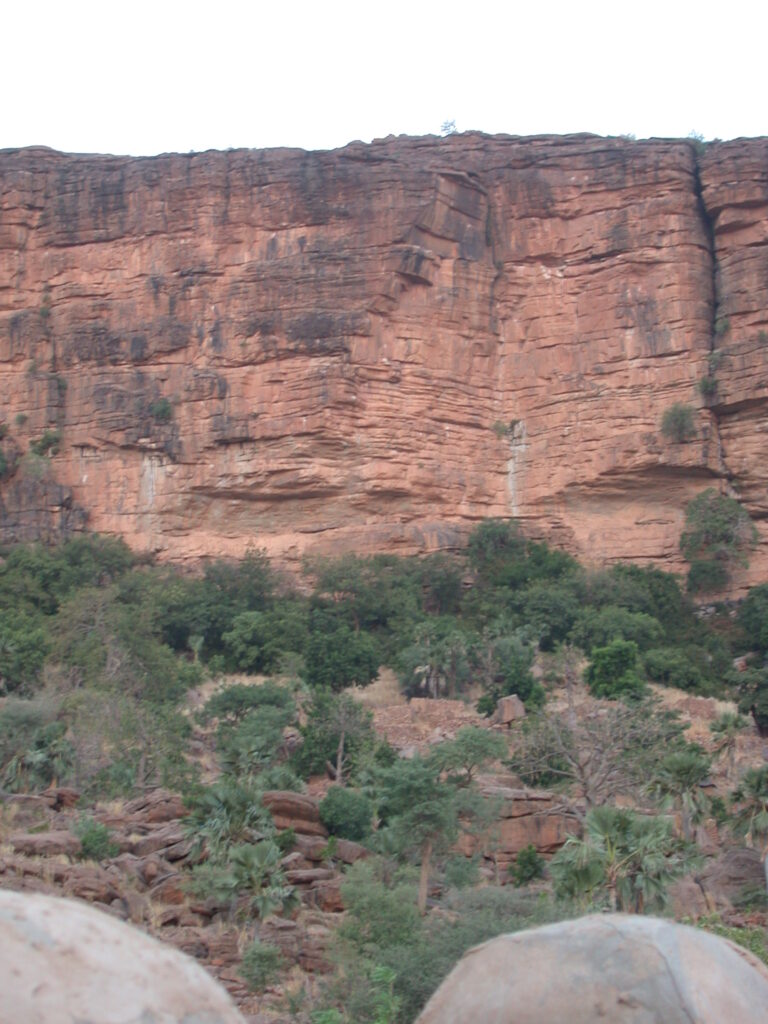
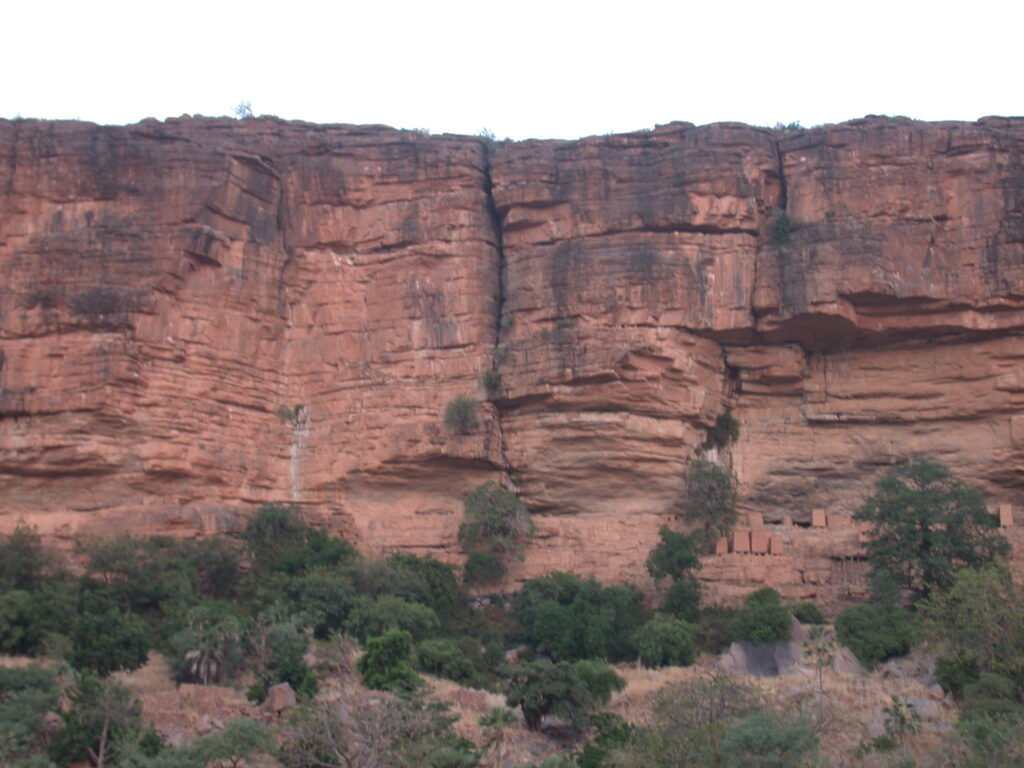
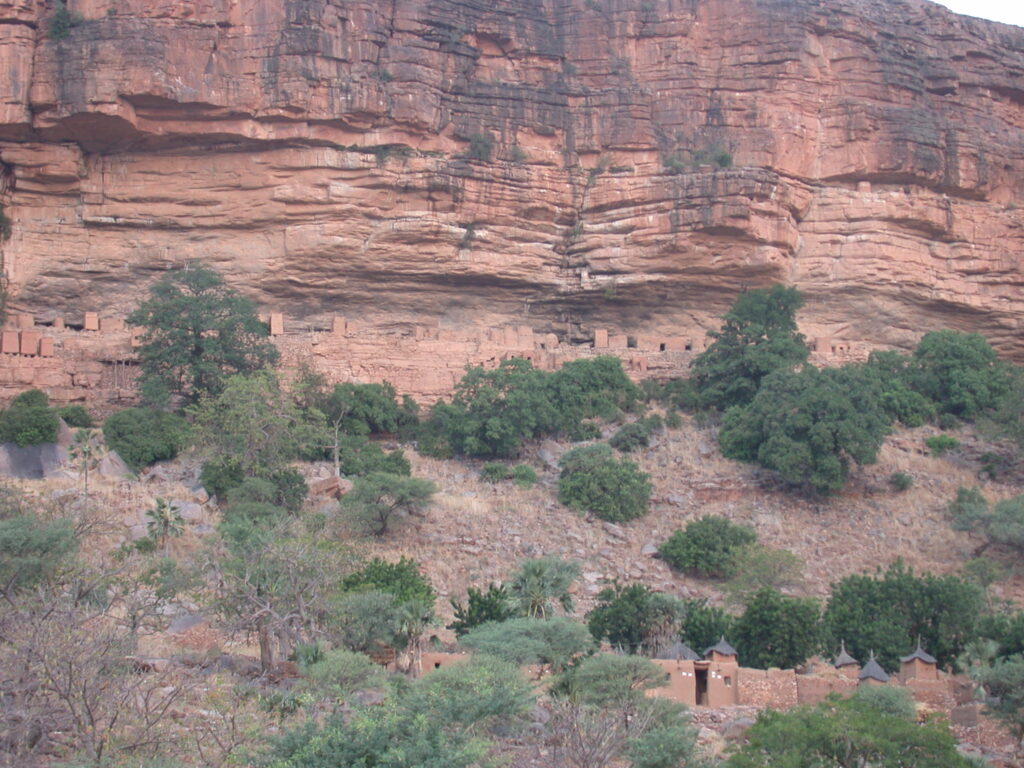
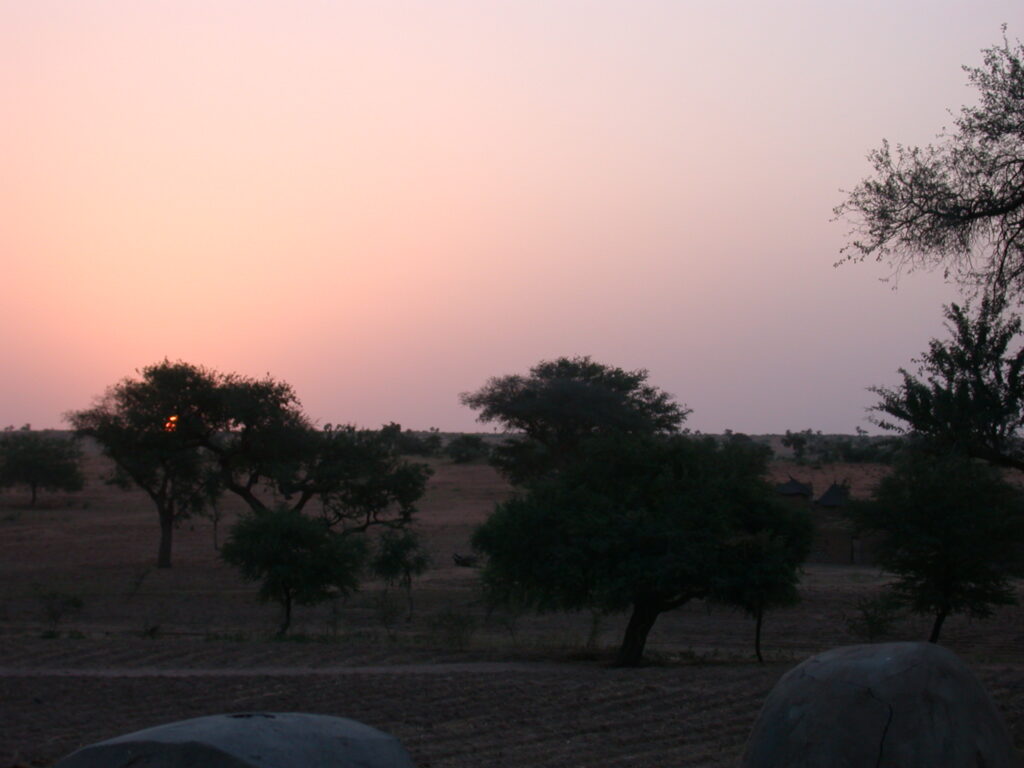
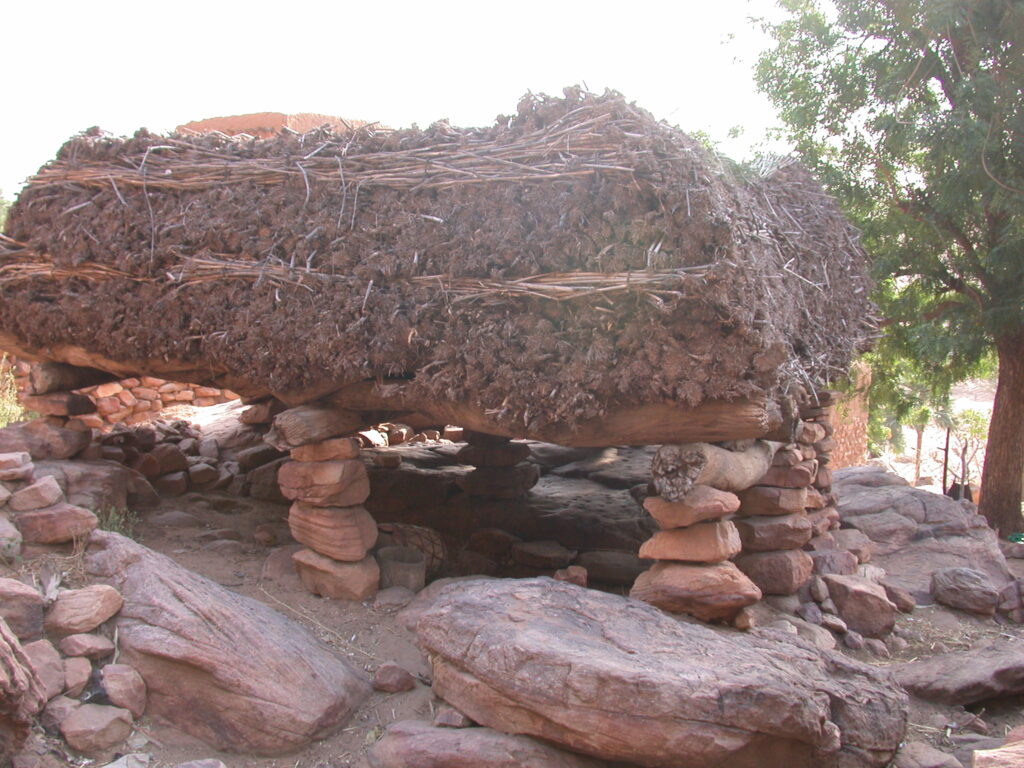
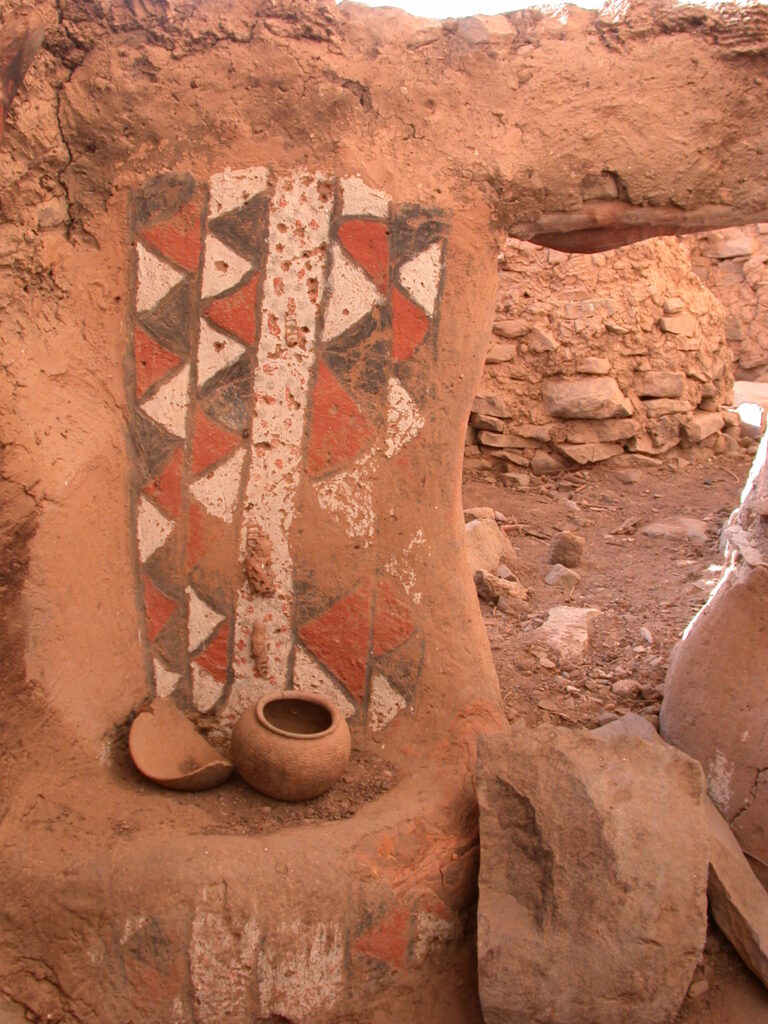
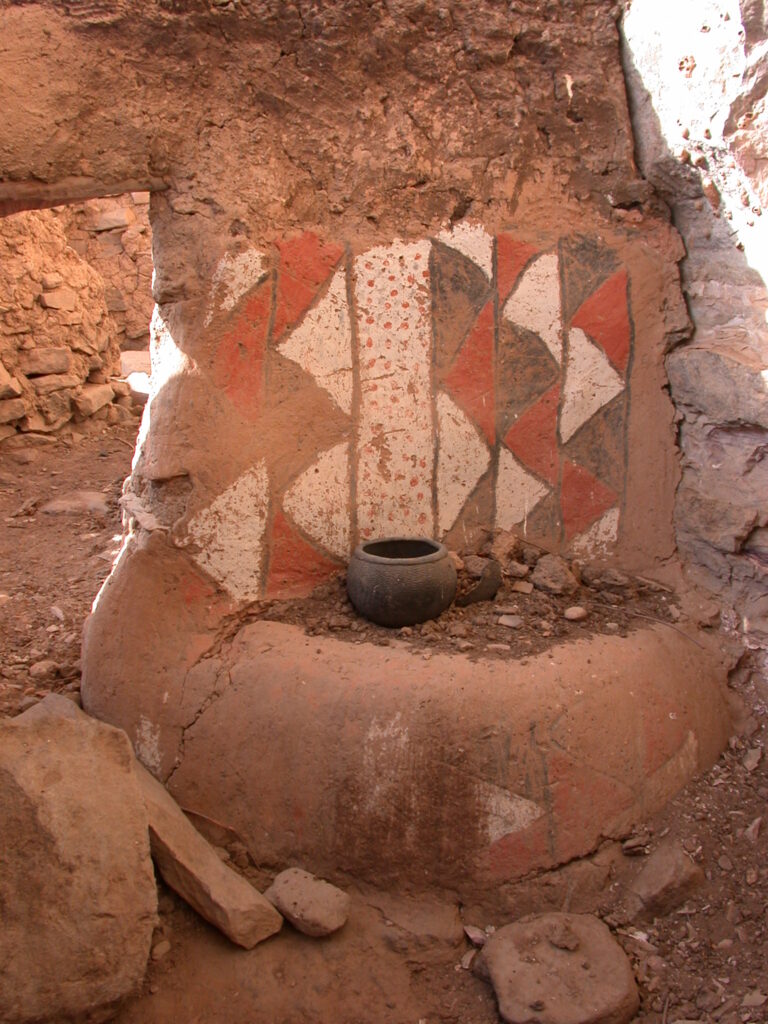
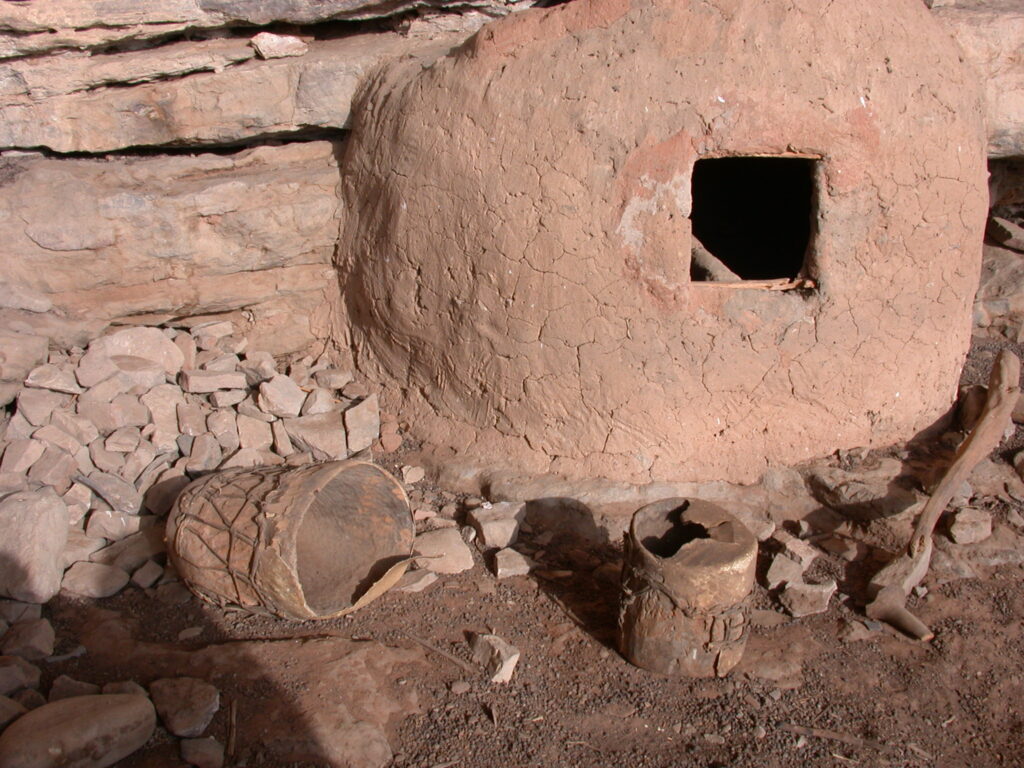
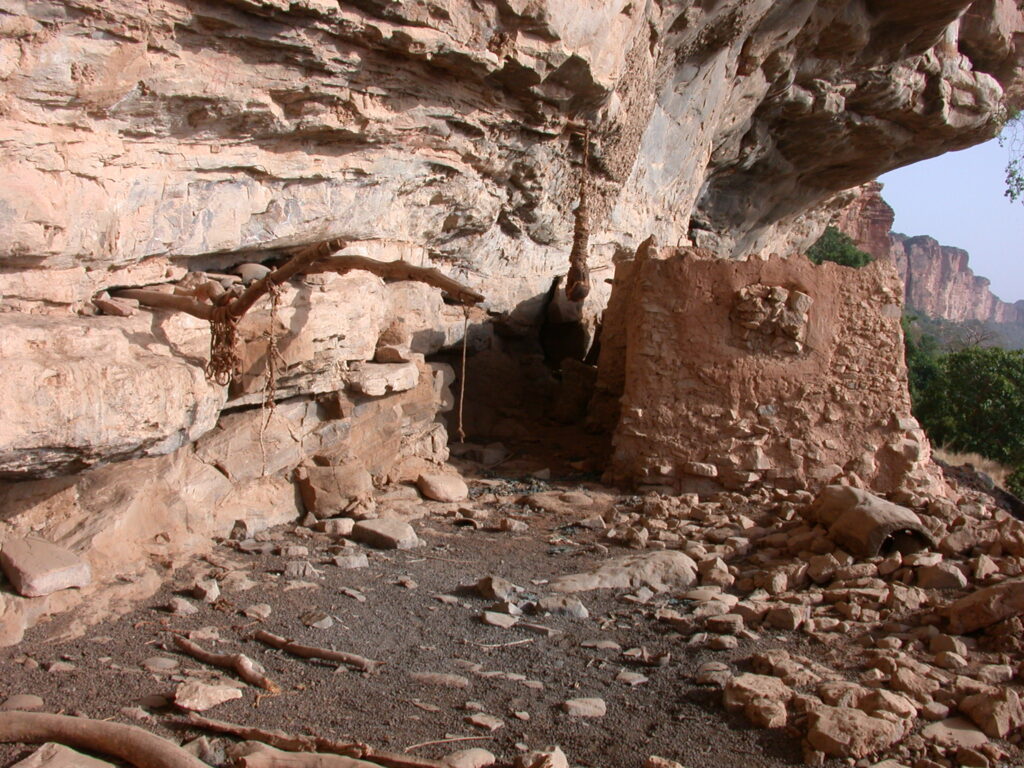
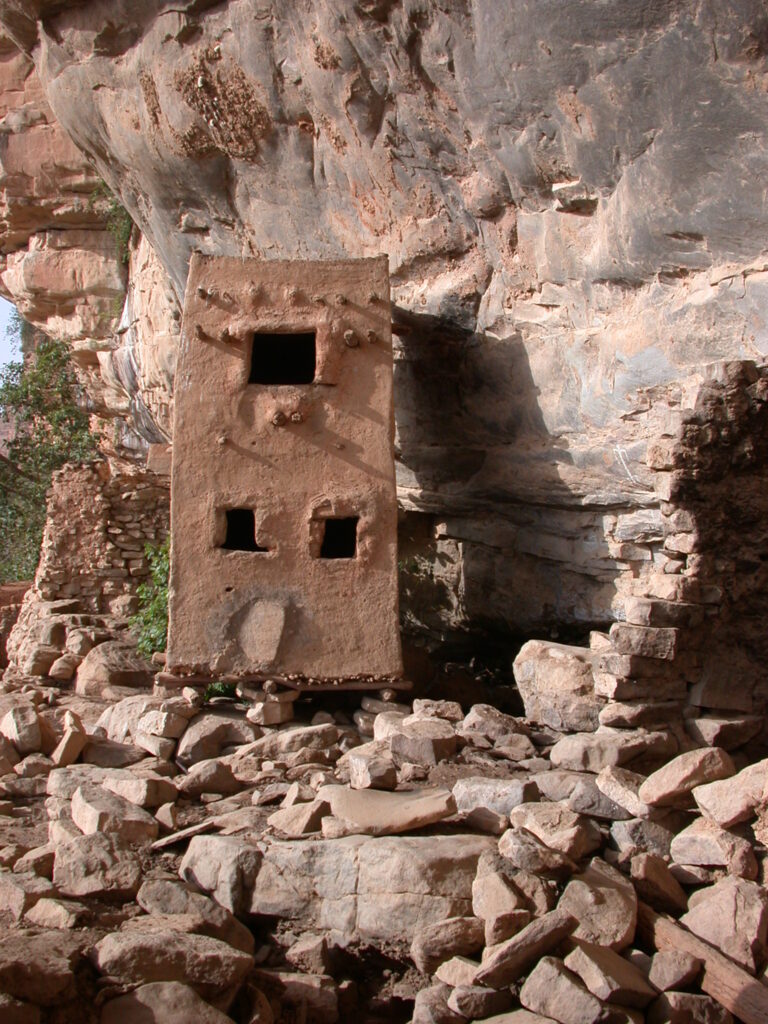
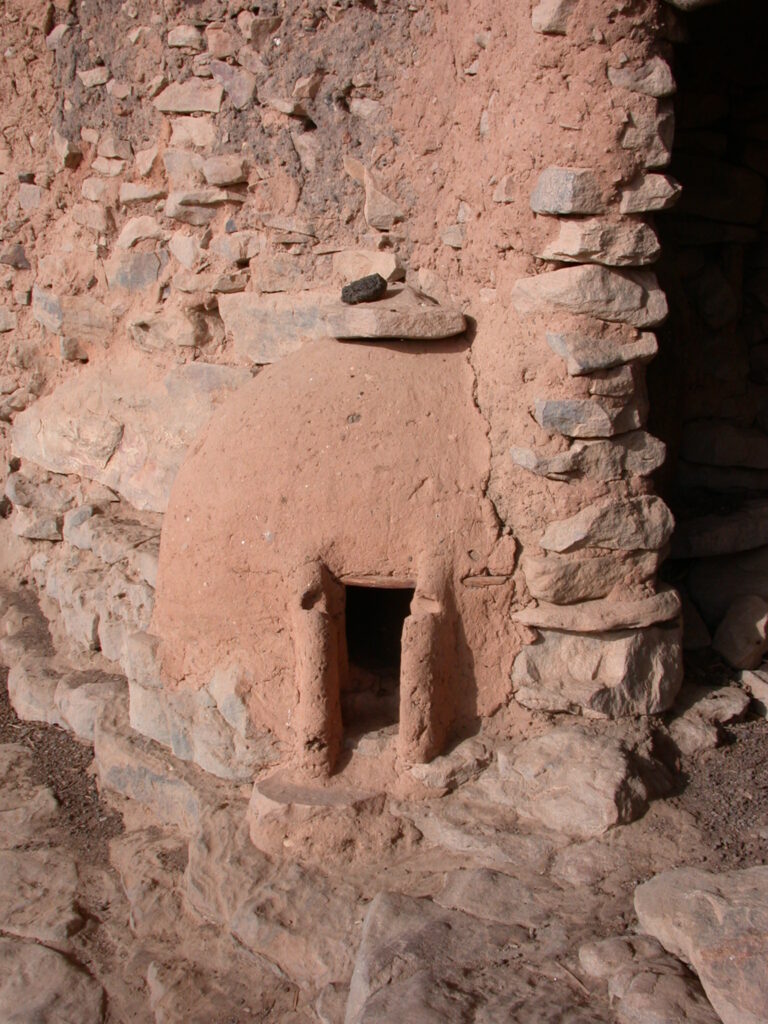
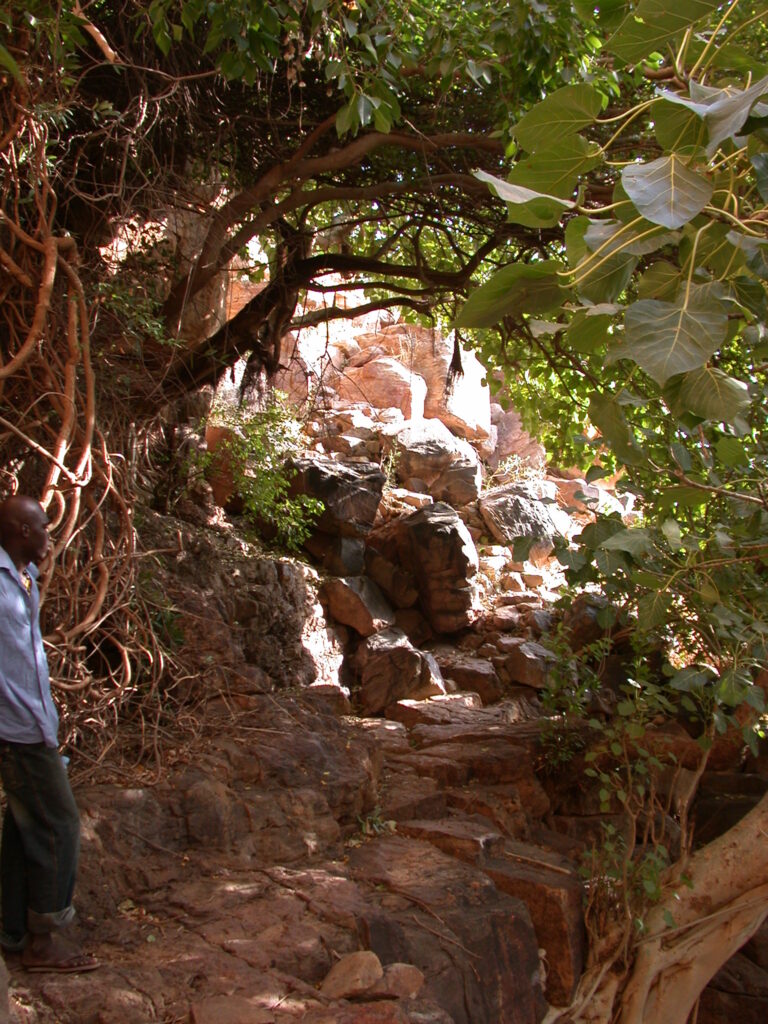
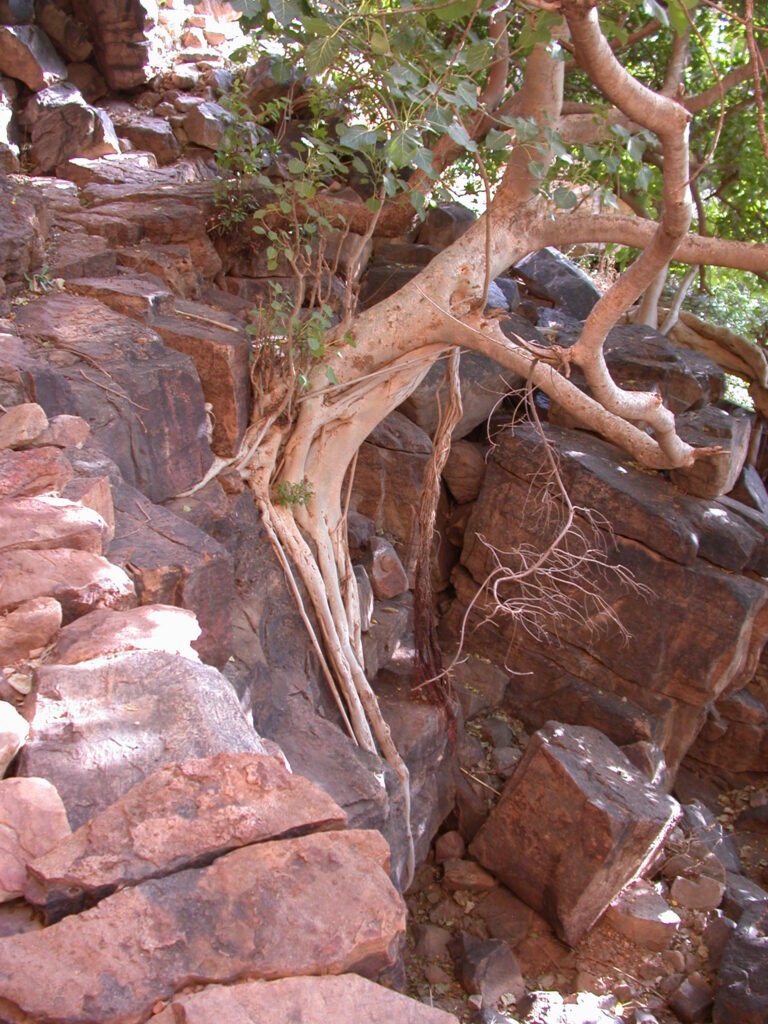
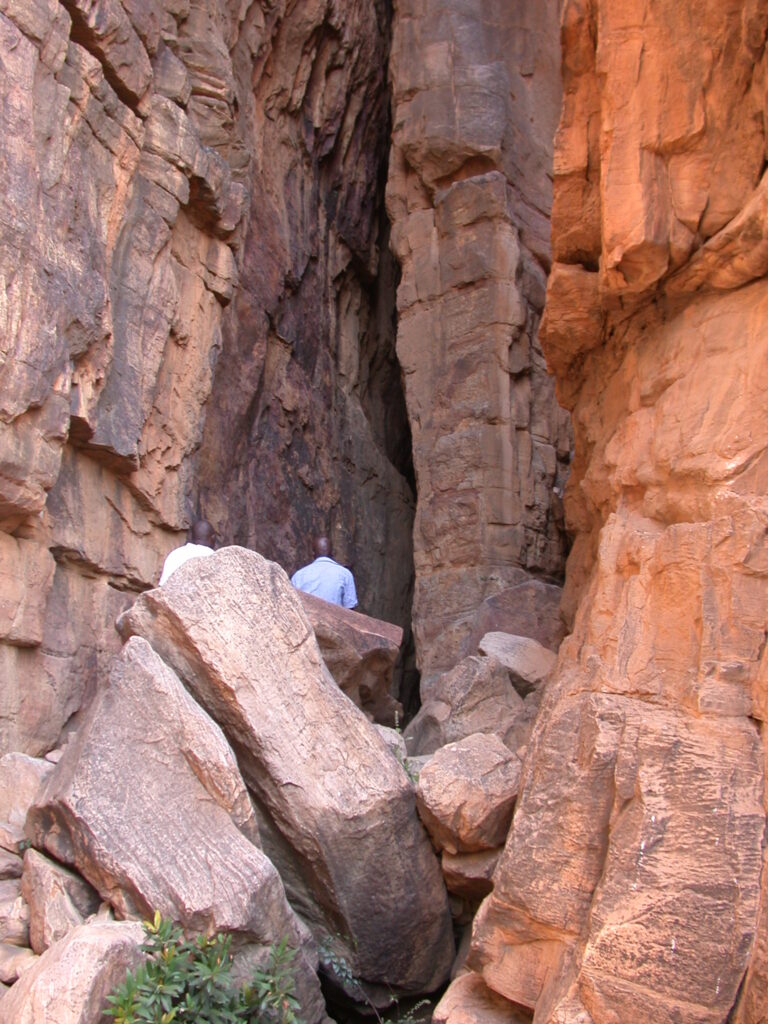
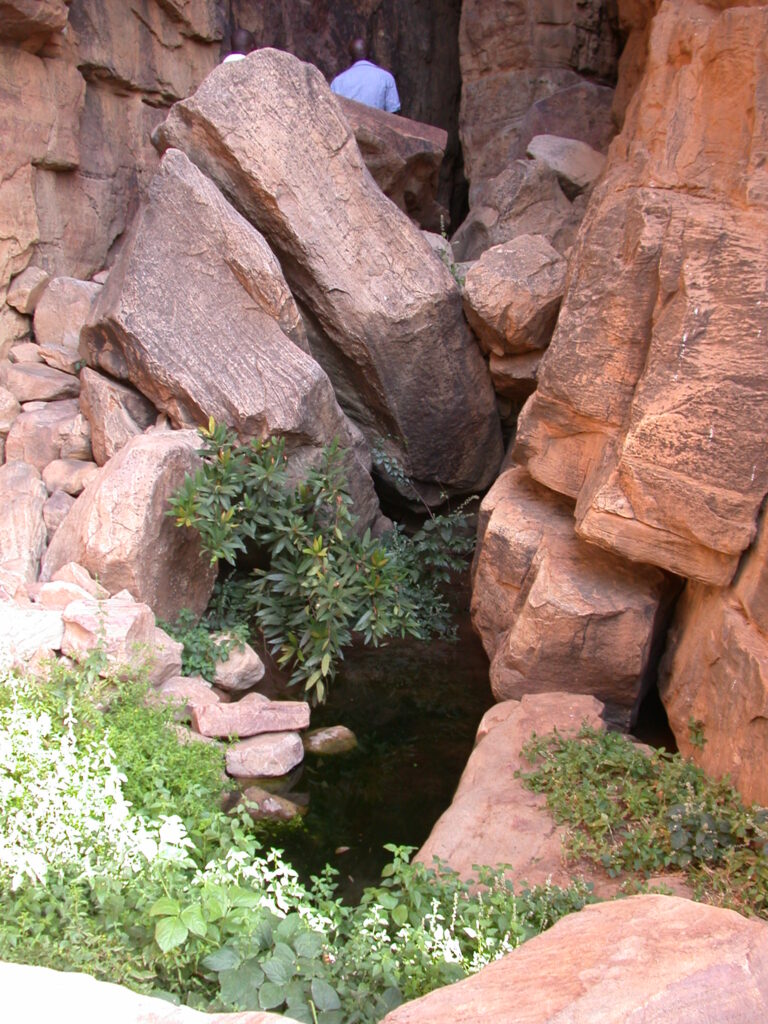
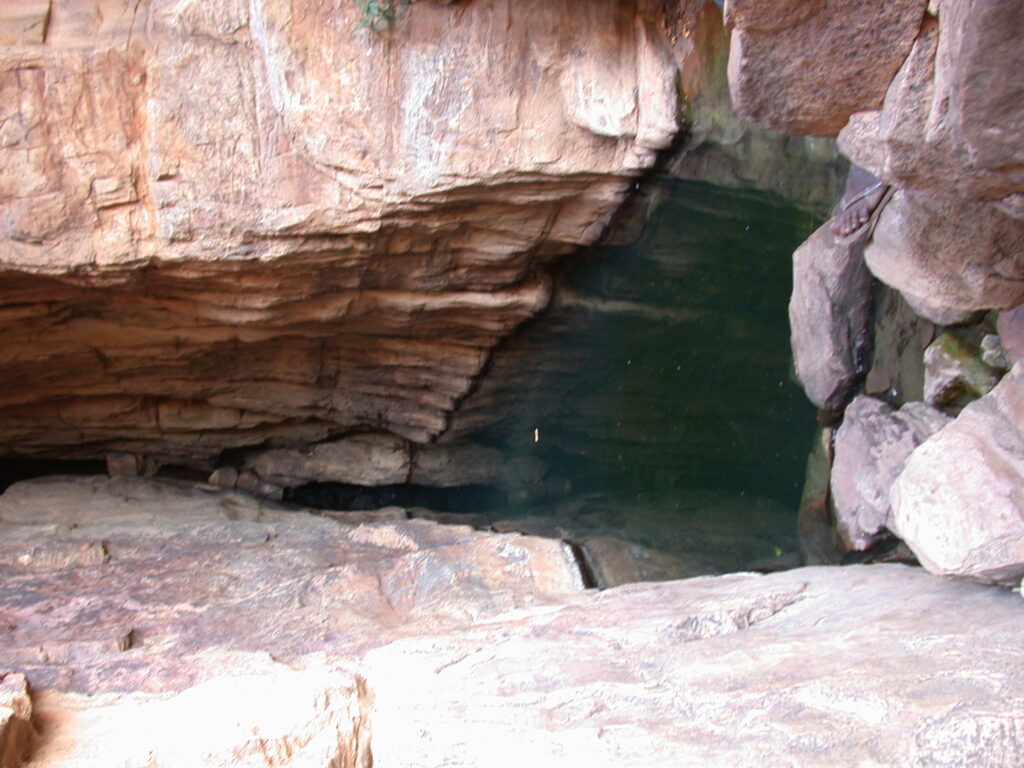
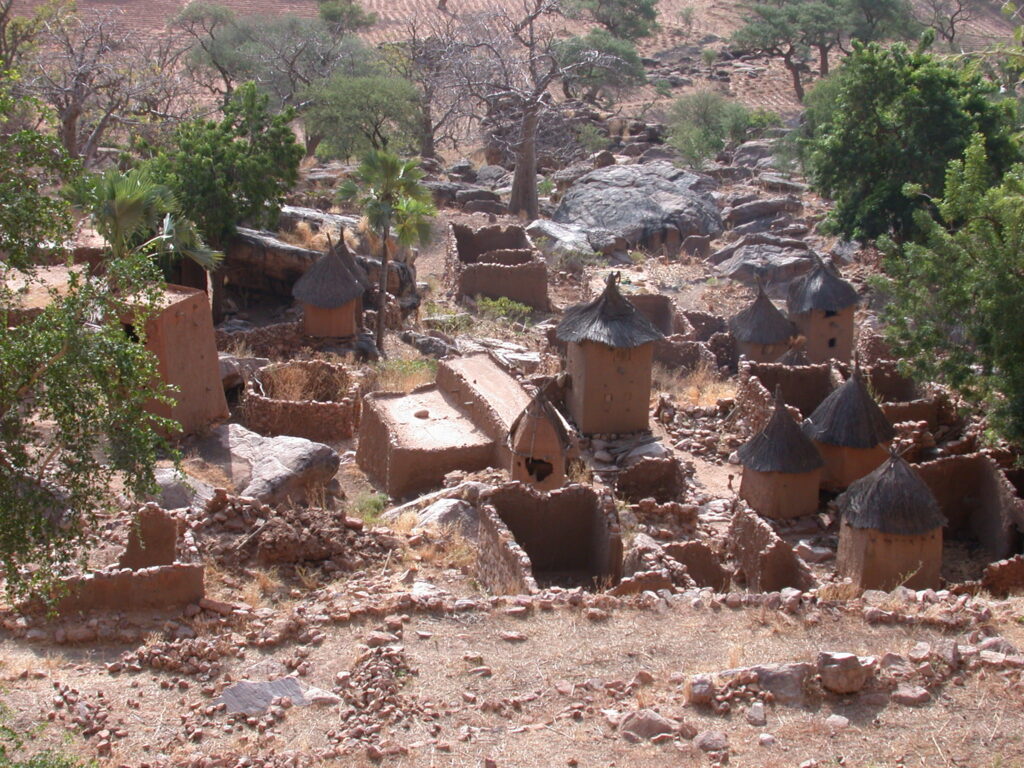
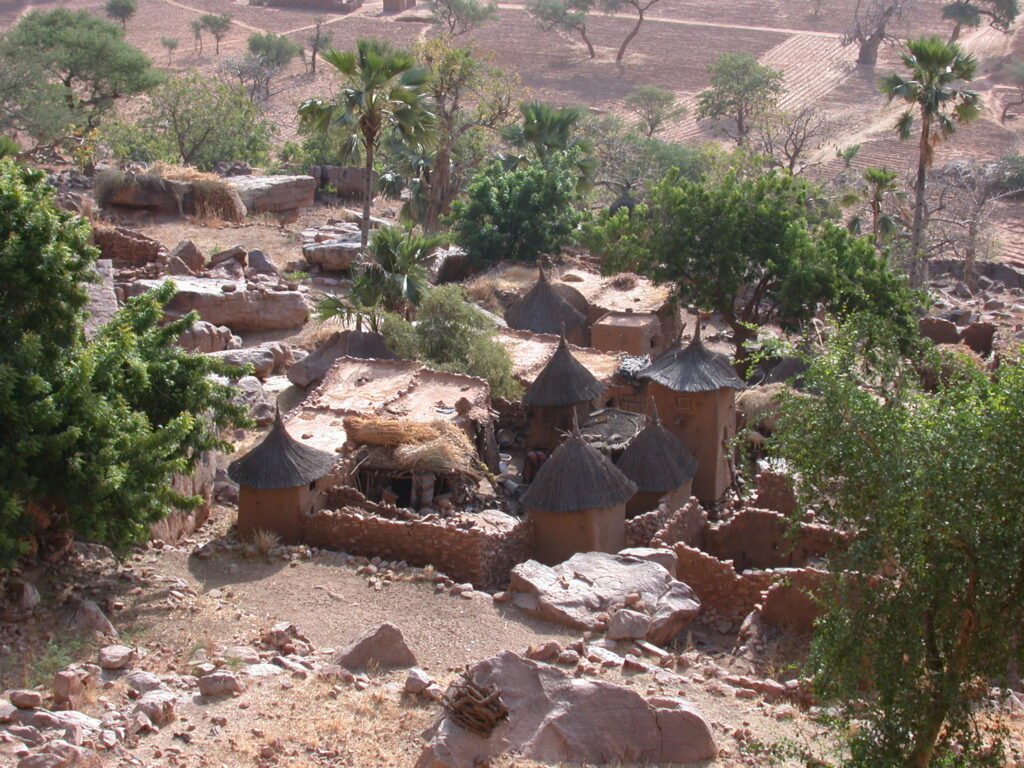
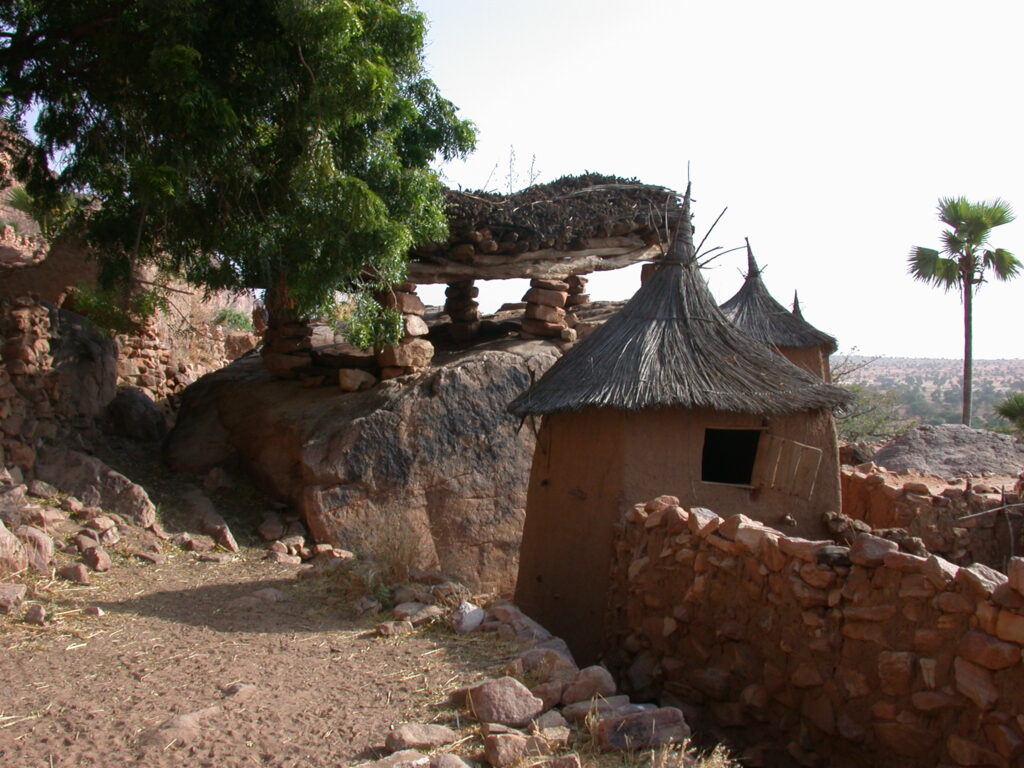
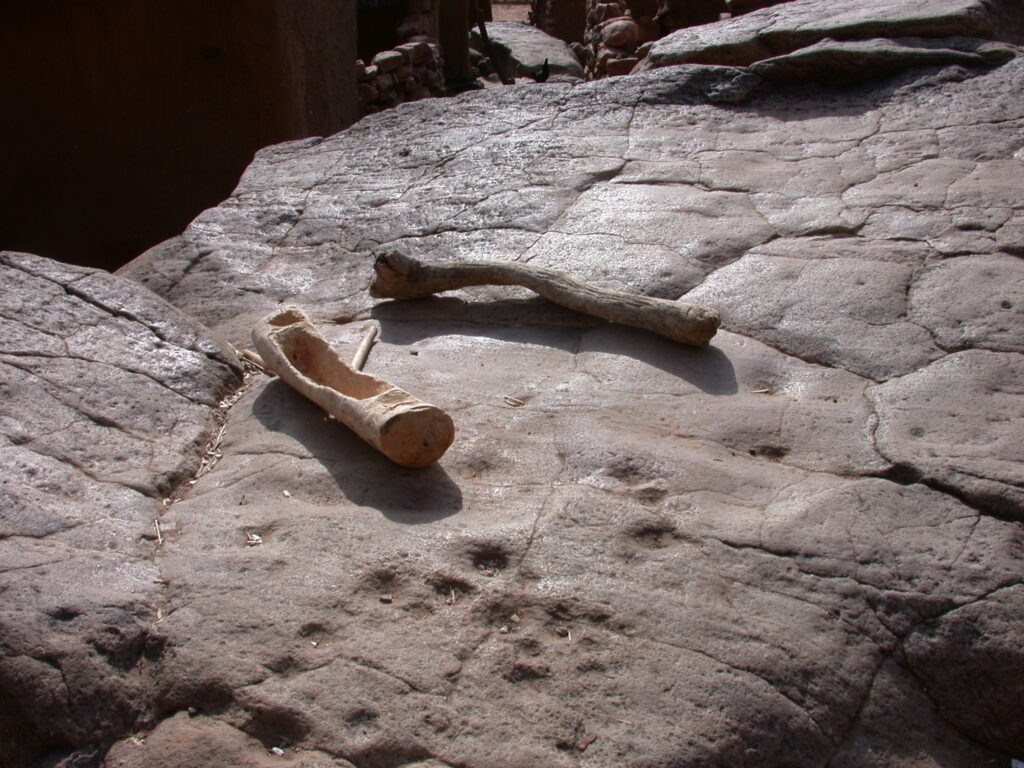
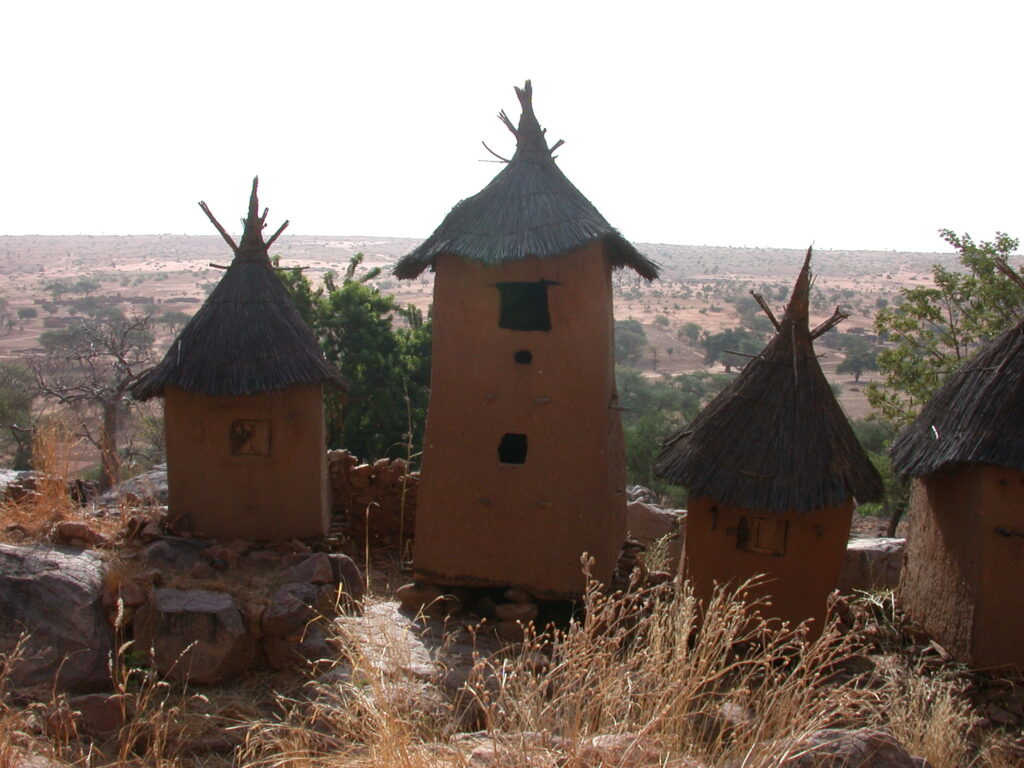
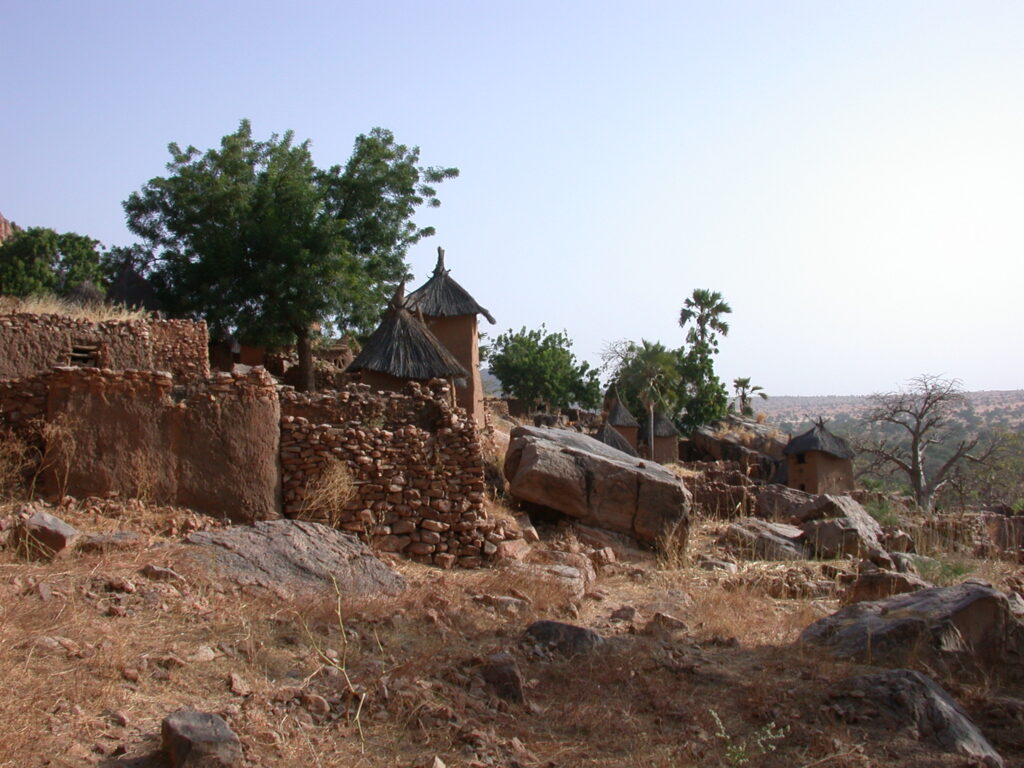
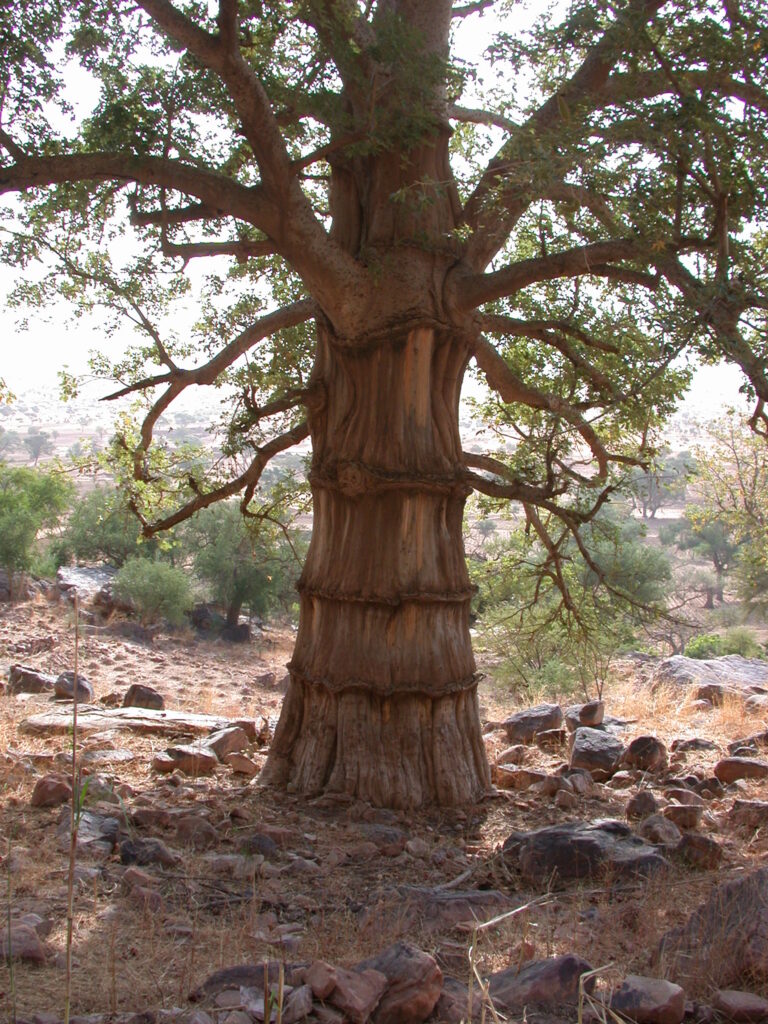
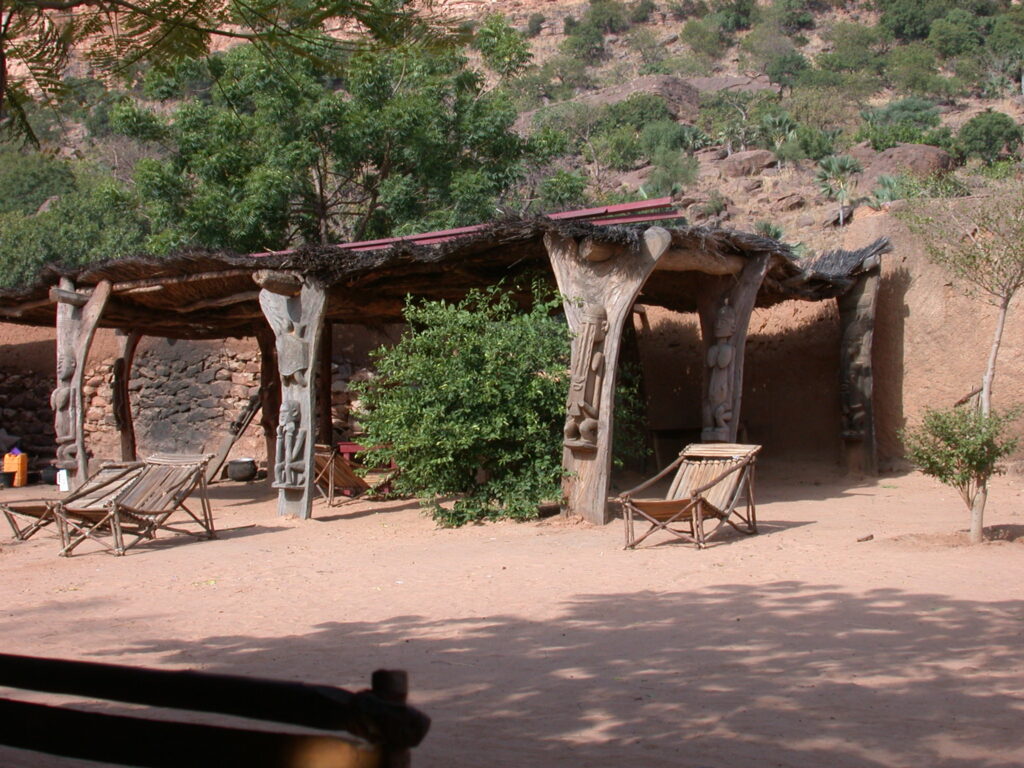
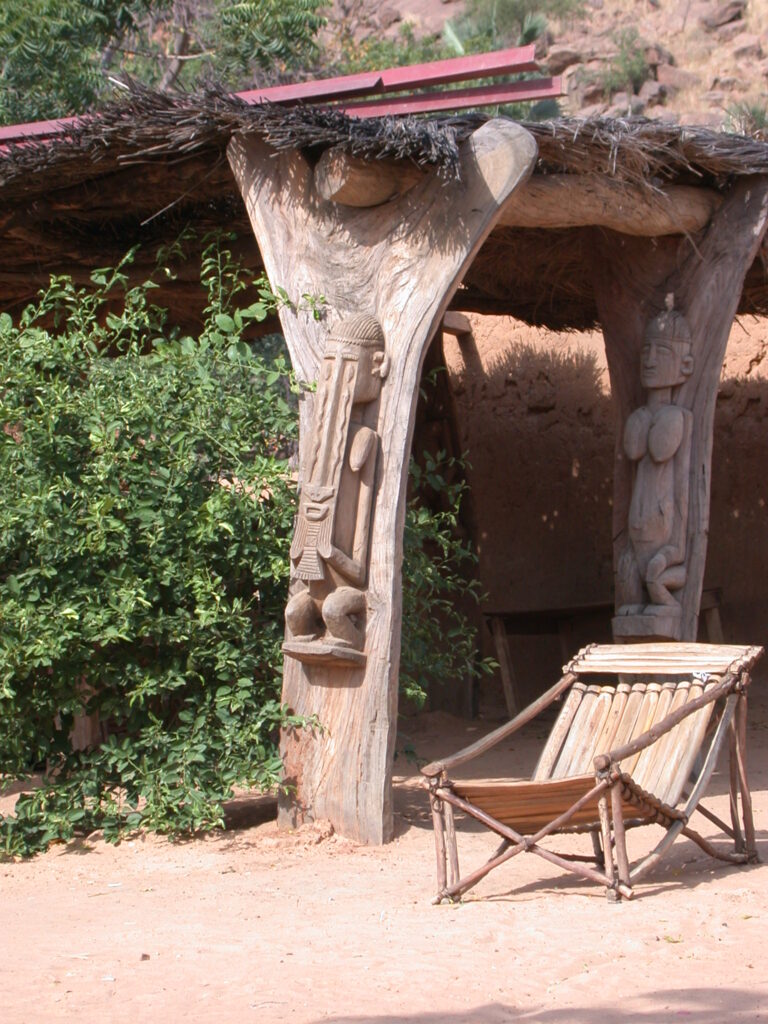
I suffered a bit due to the lack of good vegetarian food, mostly eating only couscous, rice, or noodles with sparse vegetables to accompany them, plus drinking Fanta, Sprite, or a fizzy pineapple drink and lots of bottled mineral water, sometimes supplemented with the sport mix I brought along to prevent dehydration. I lost a bit of weight and didn’t feel strong enough to hike up the more strenuous route on the way to the village of Begnetmoto, so Chicago led me up an easier valley route to the village.
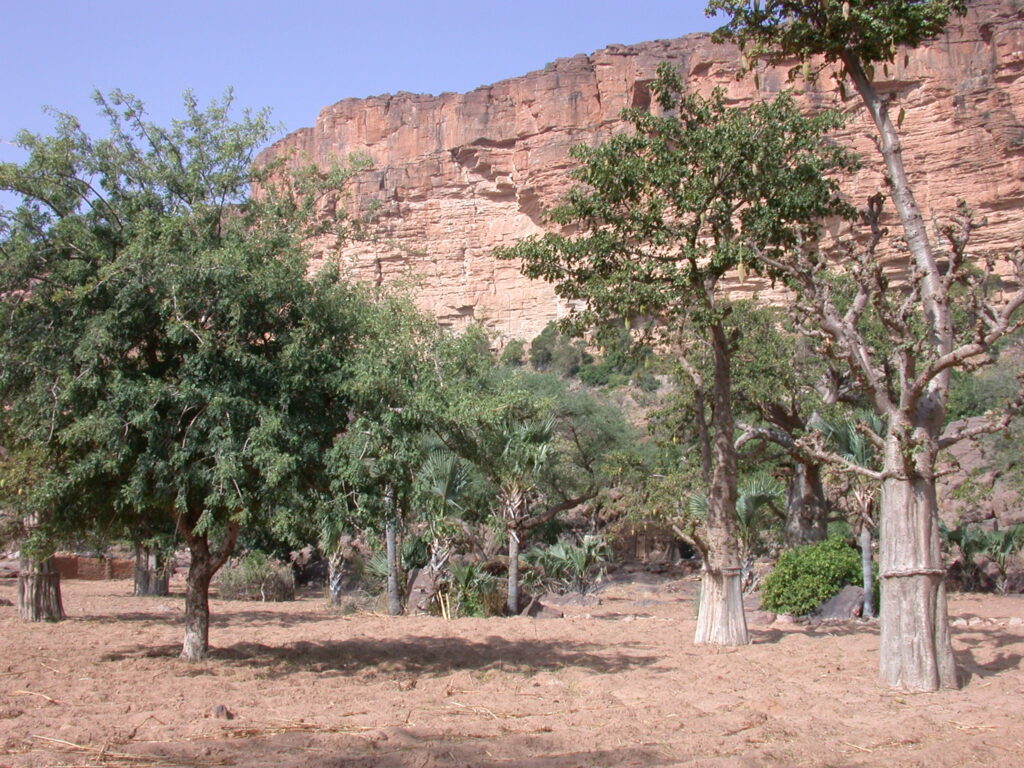
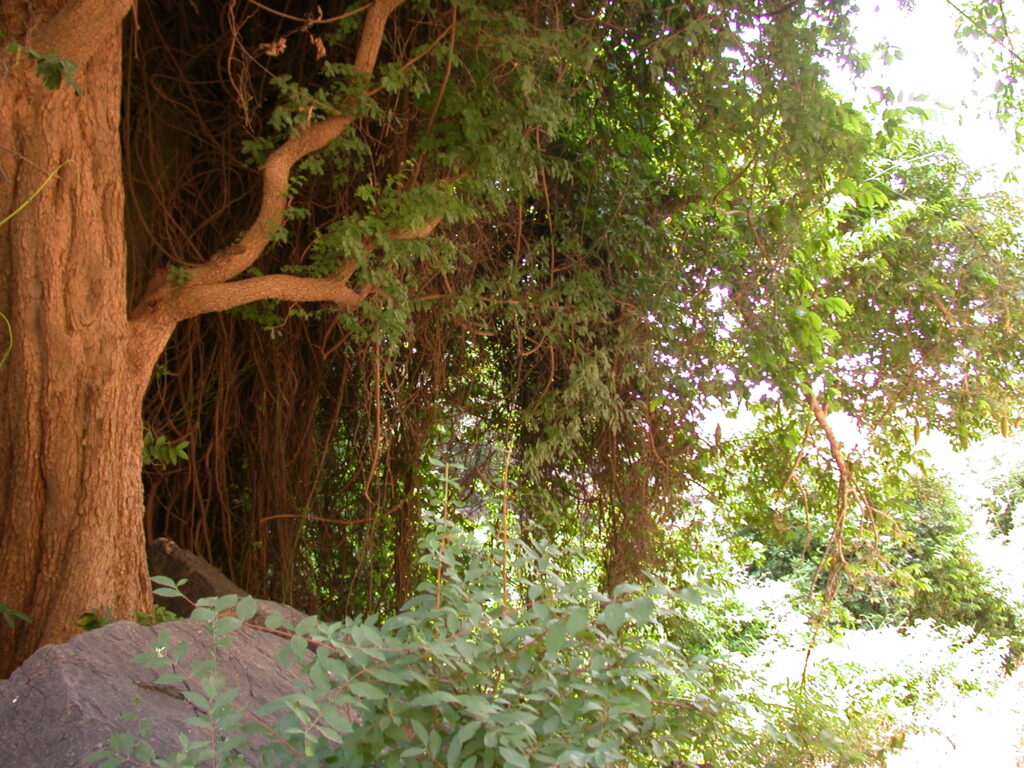
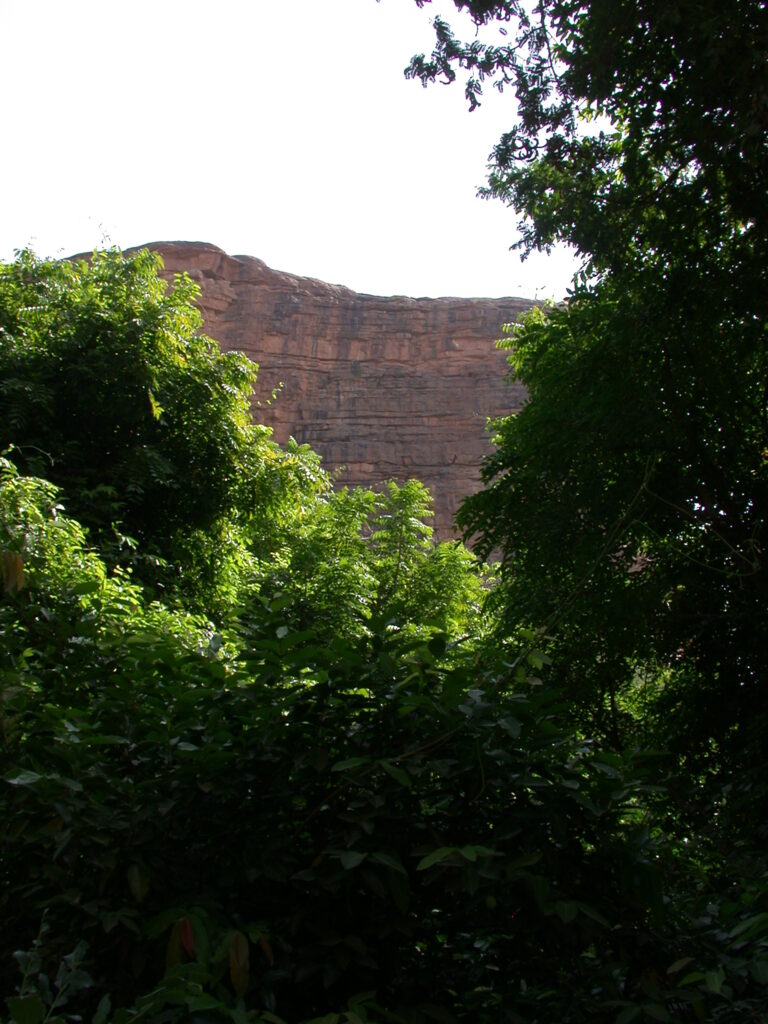
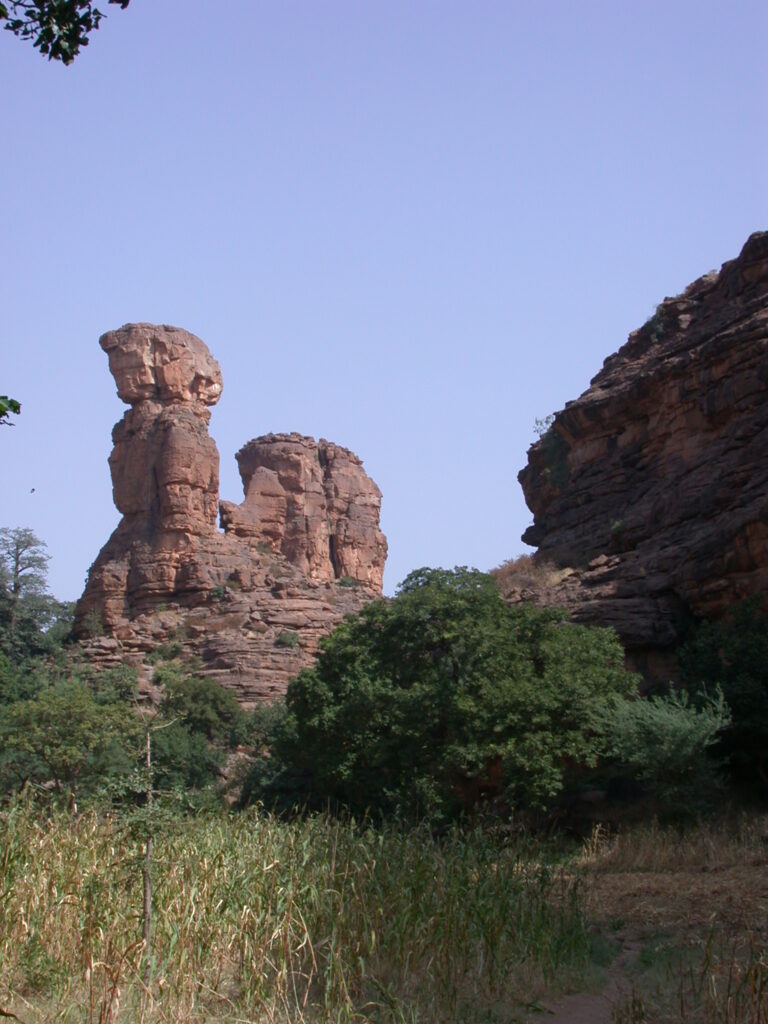
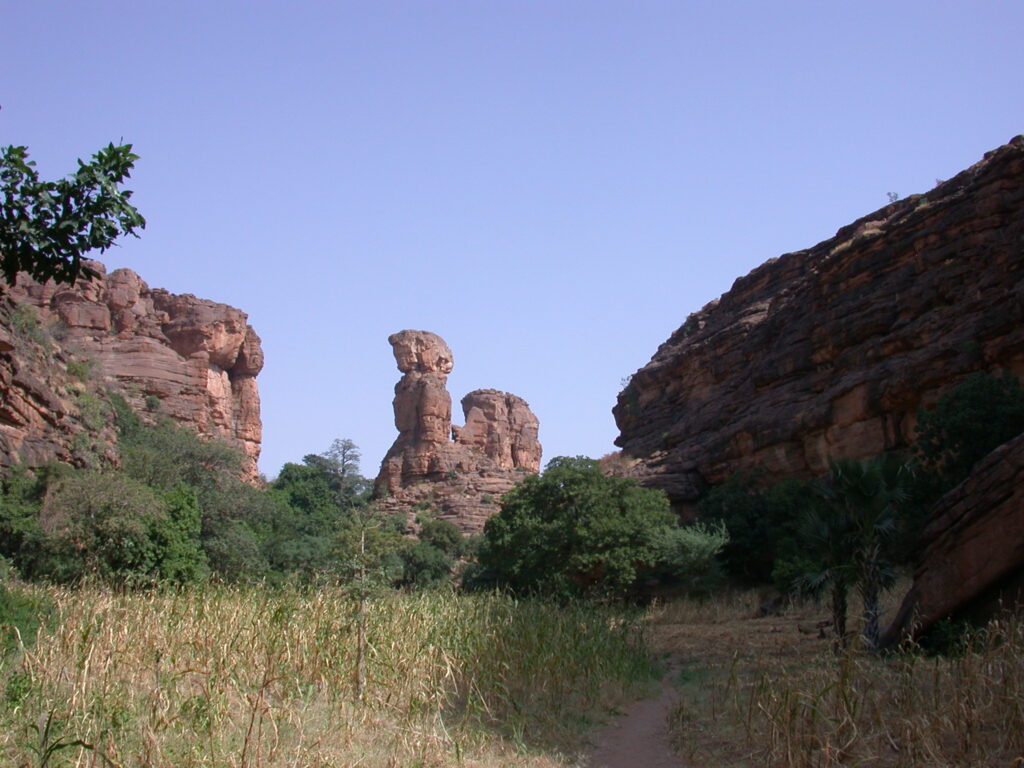
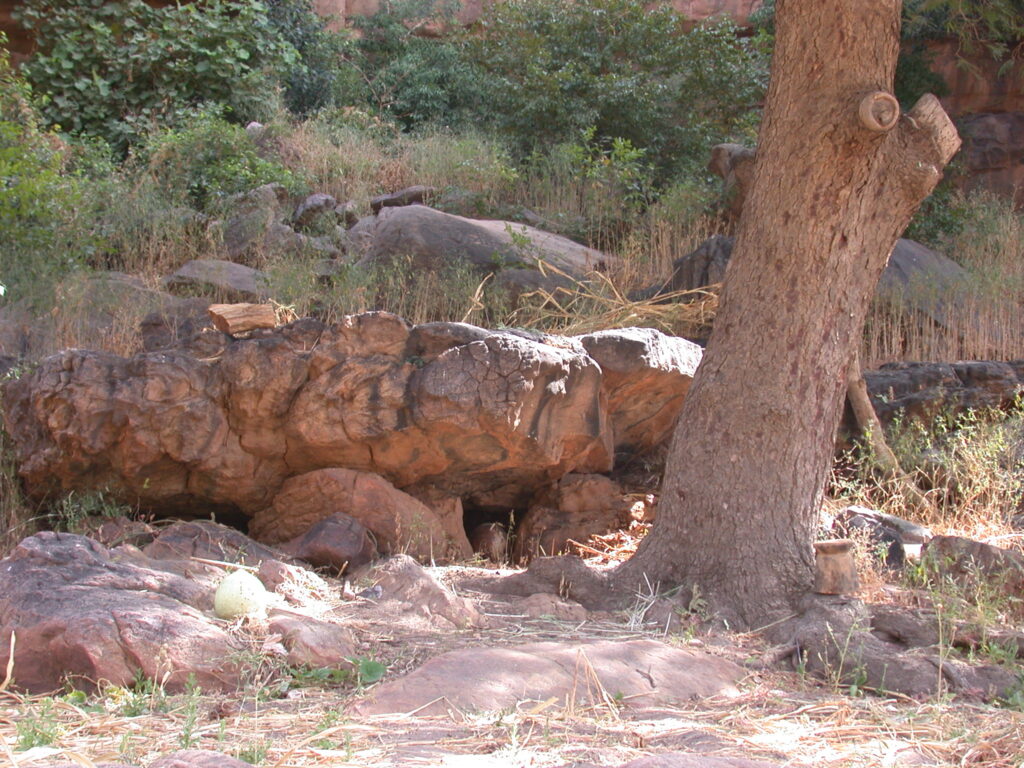
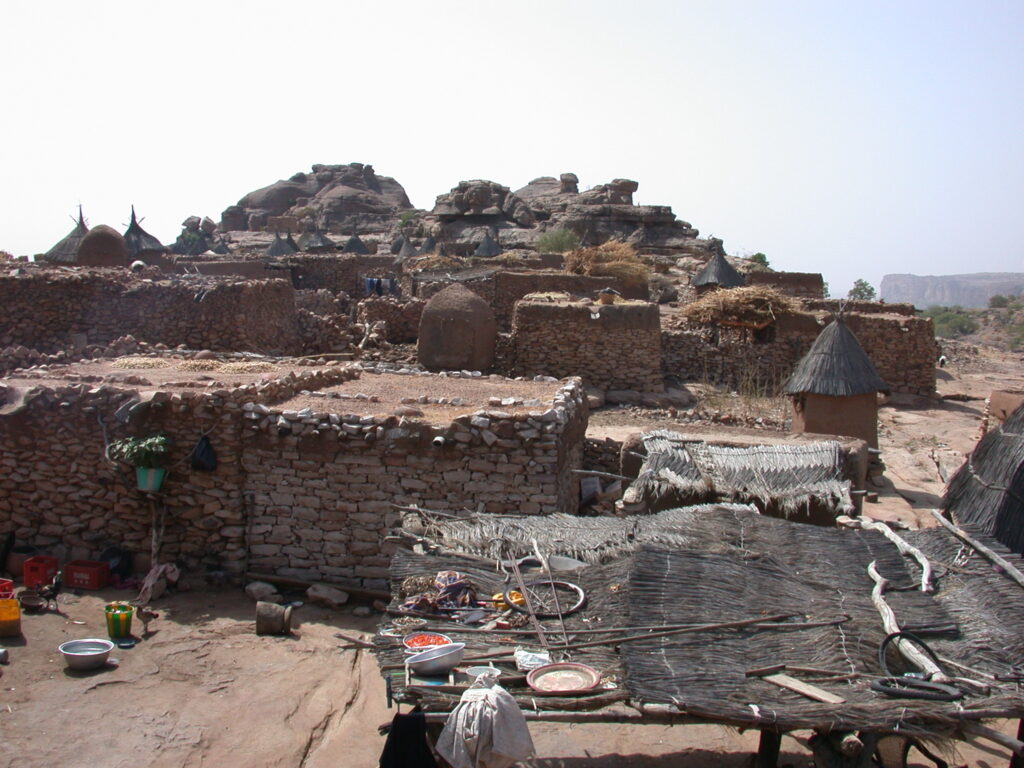
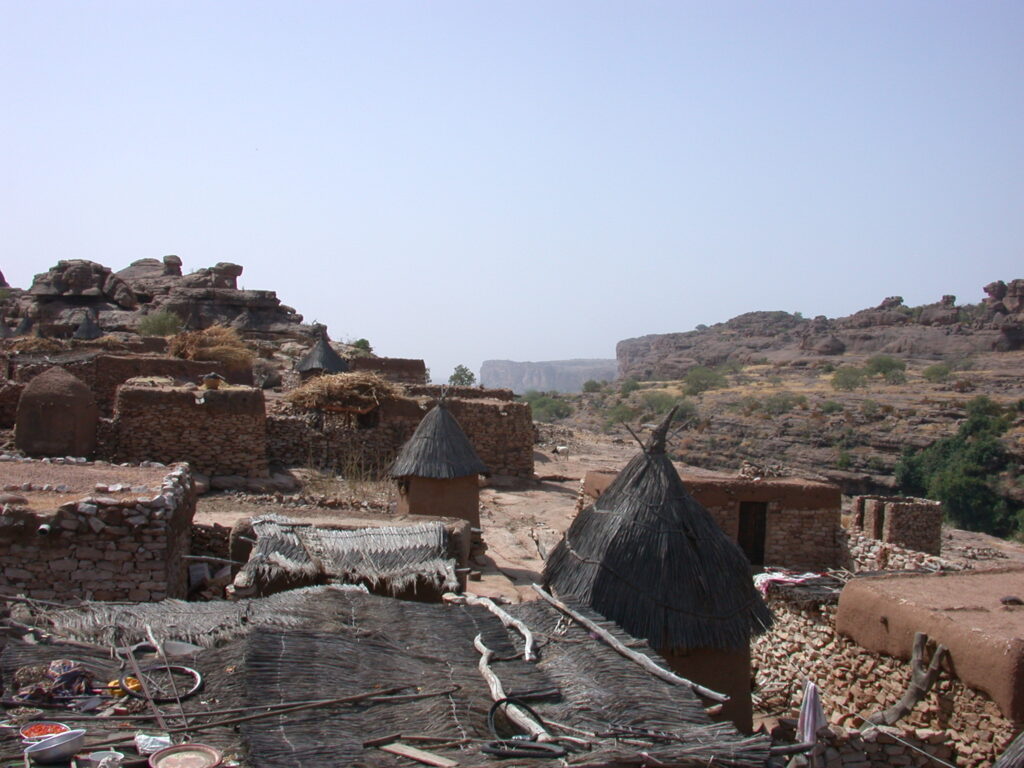
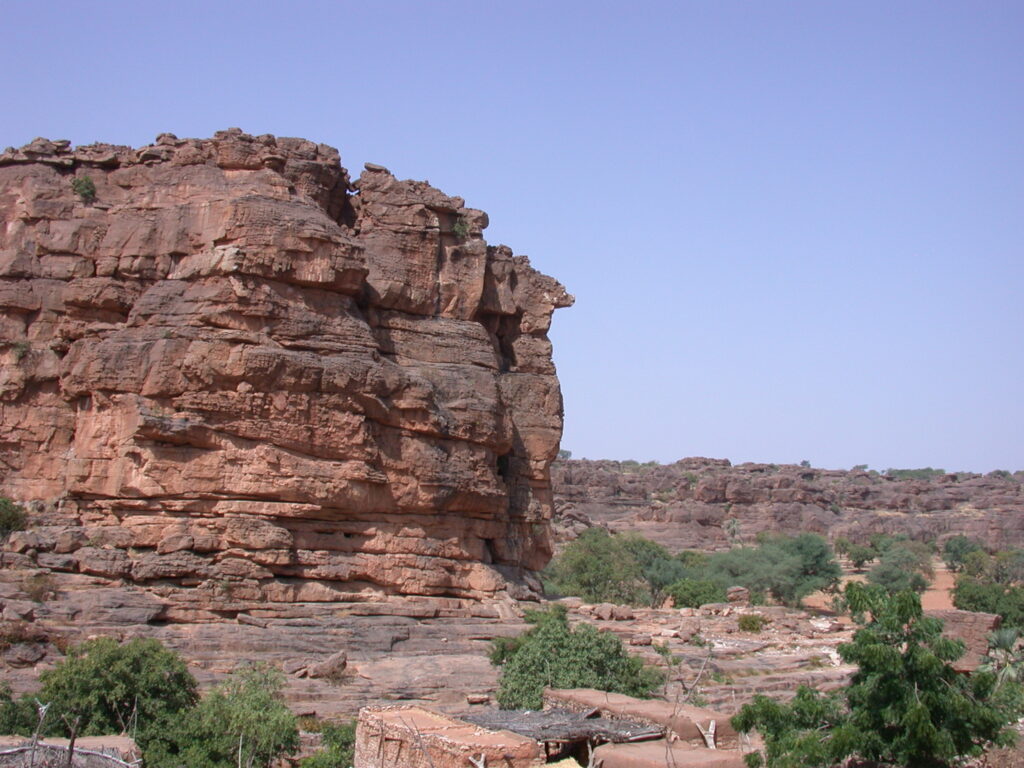
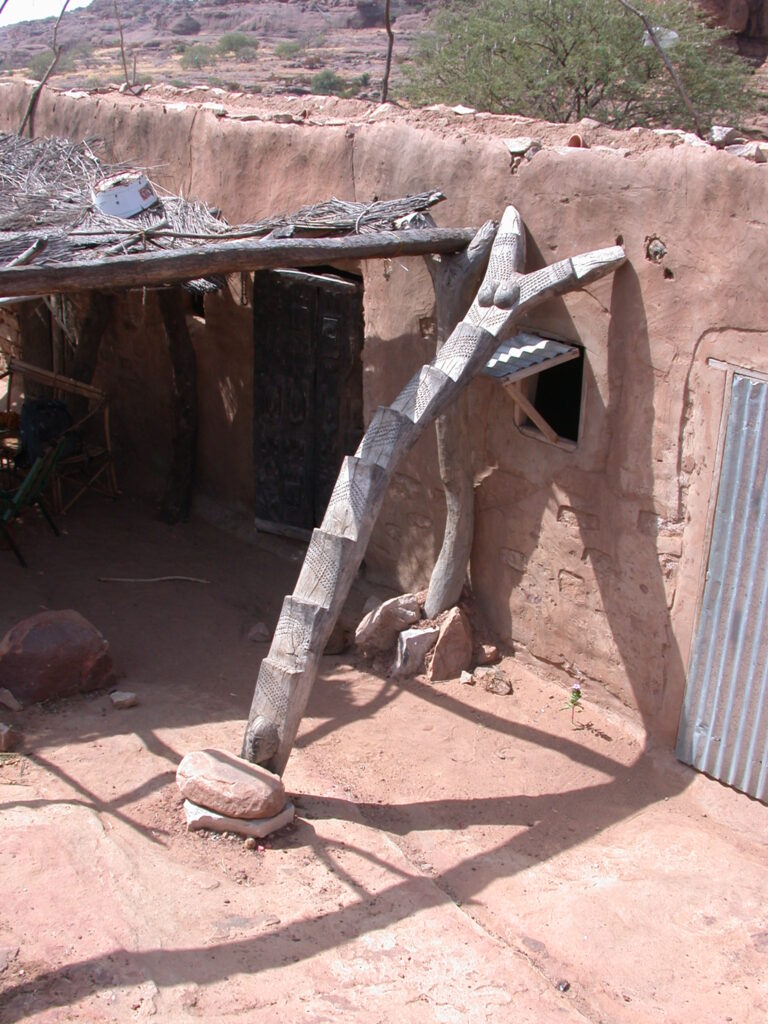
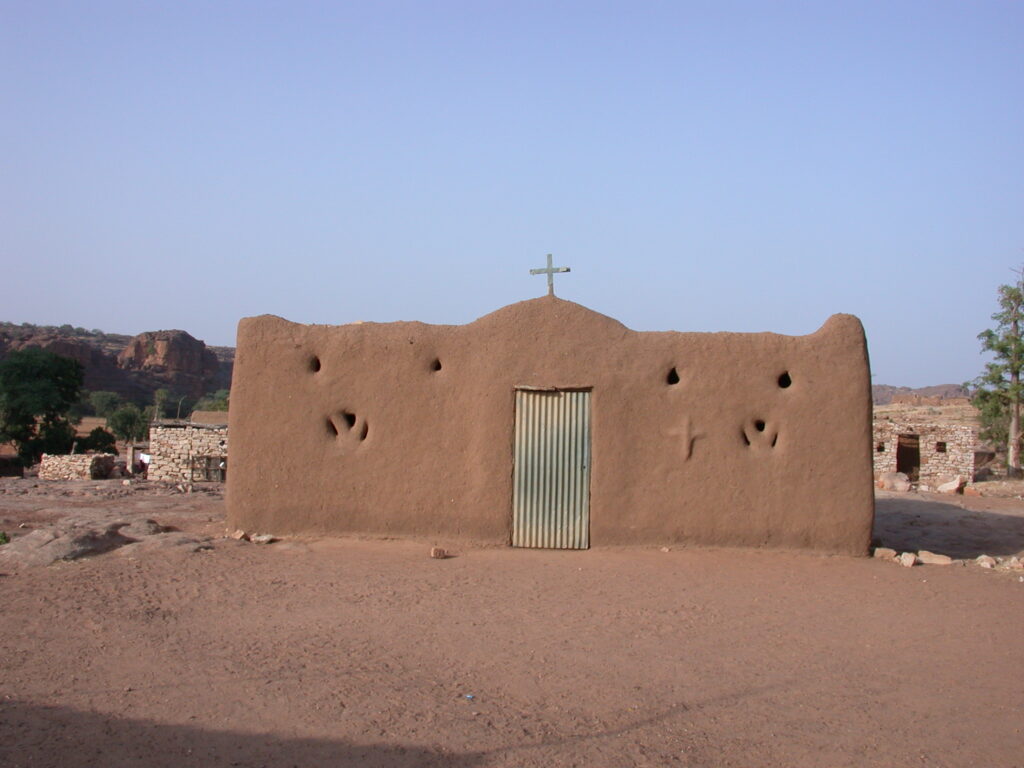
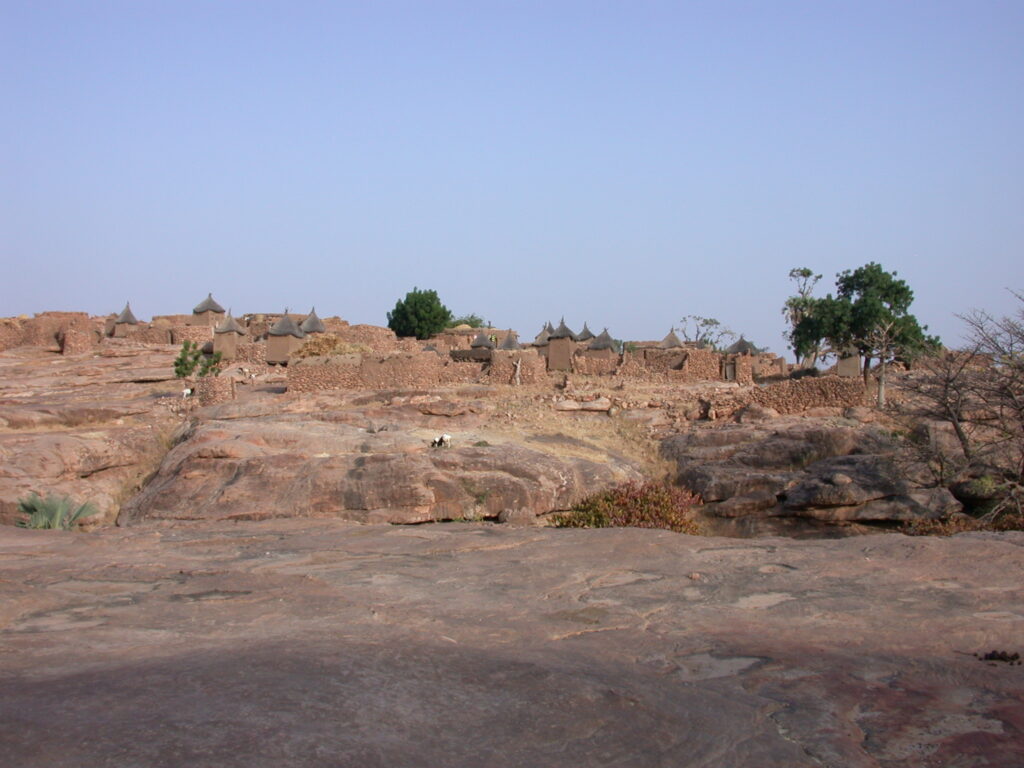
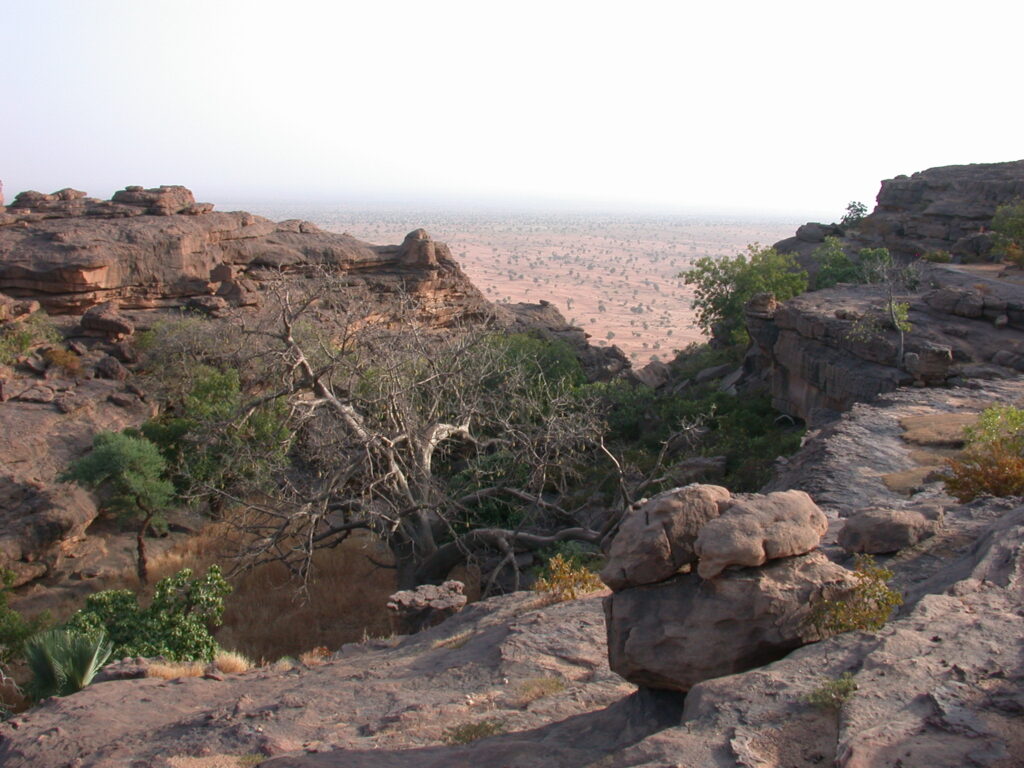
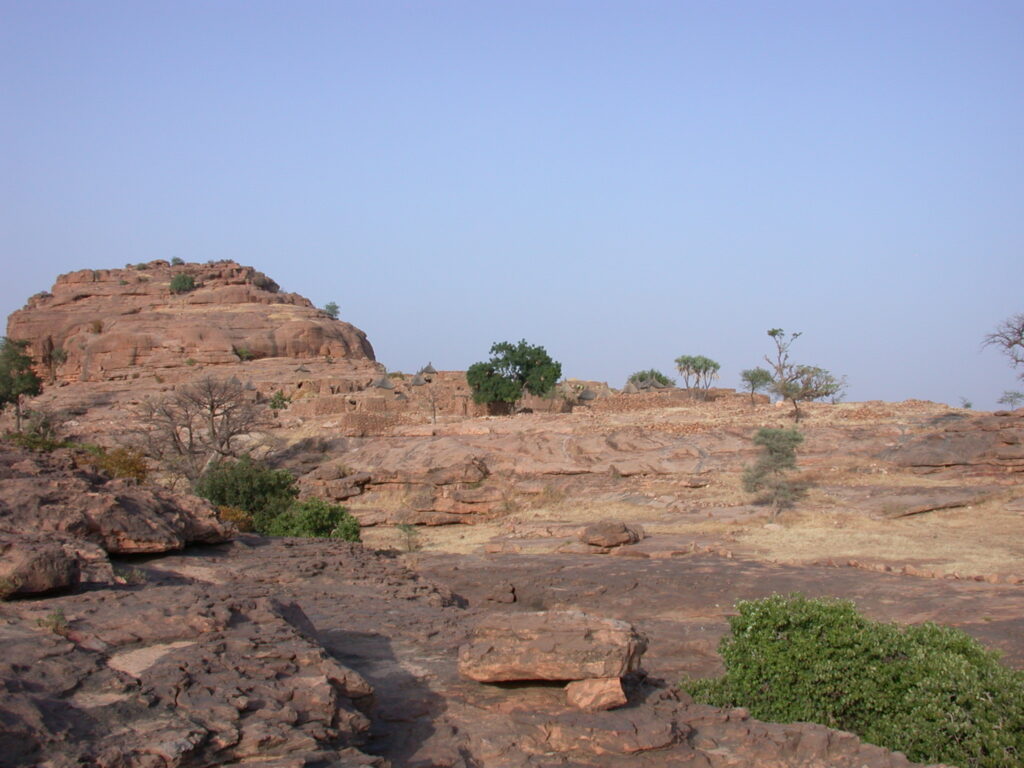
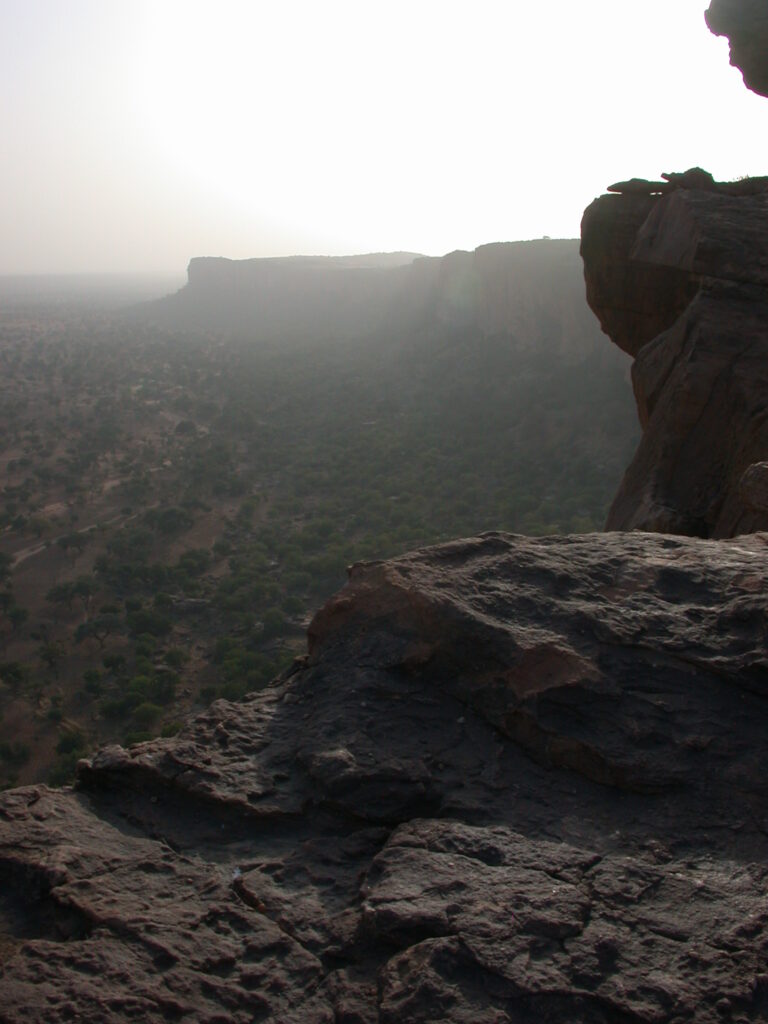
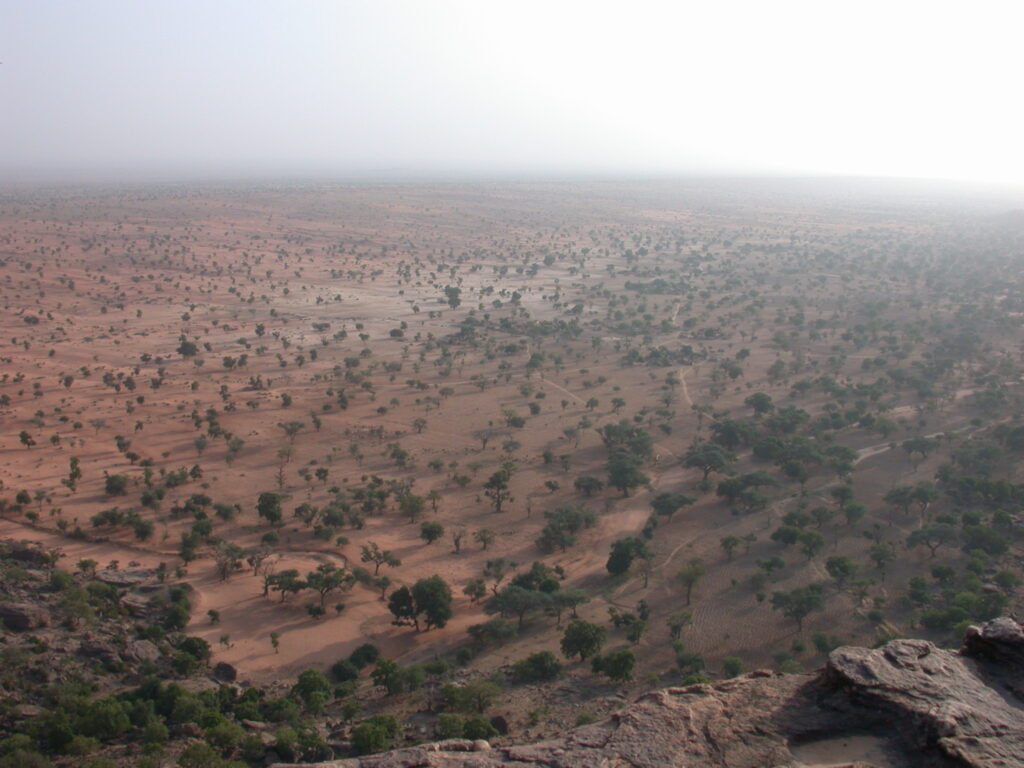
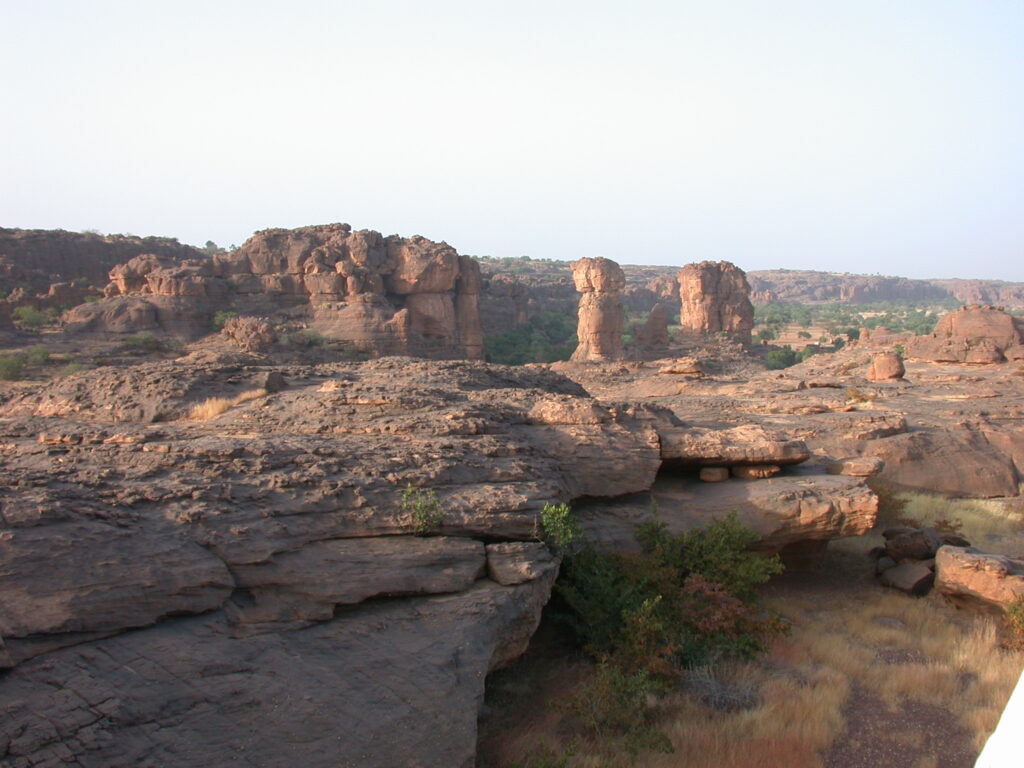
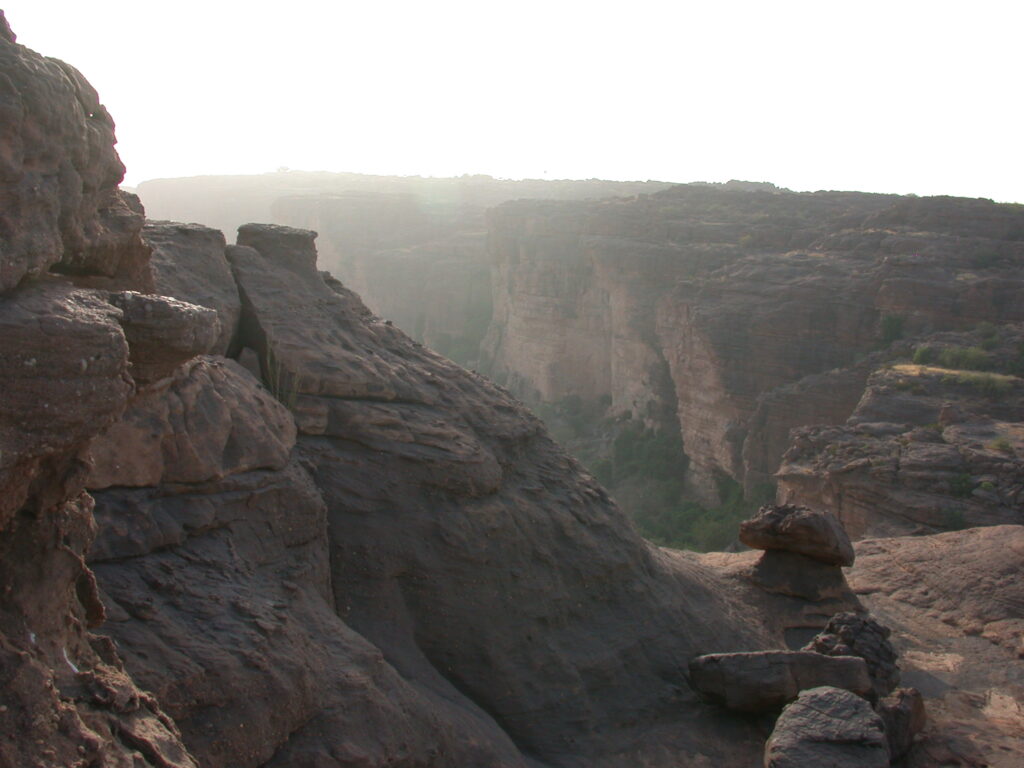
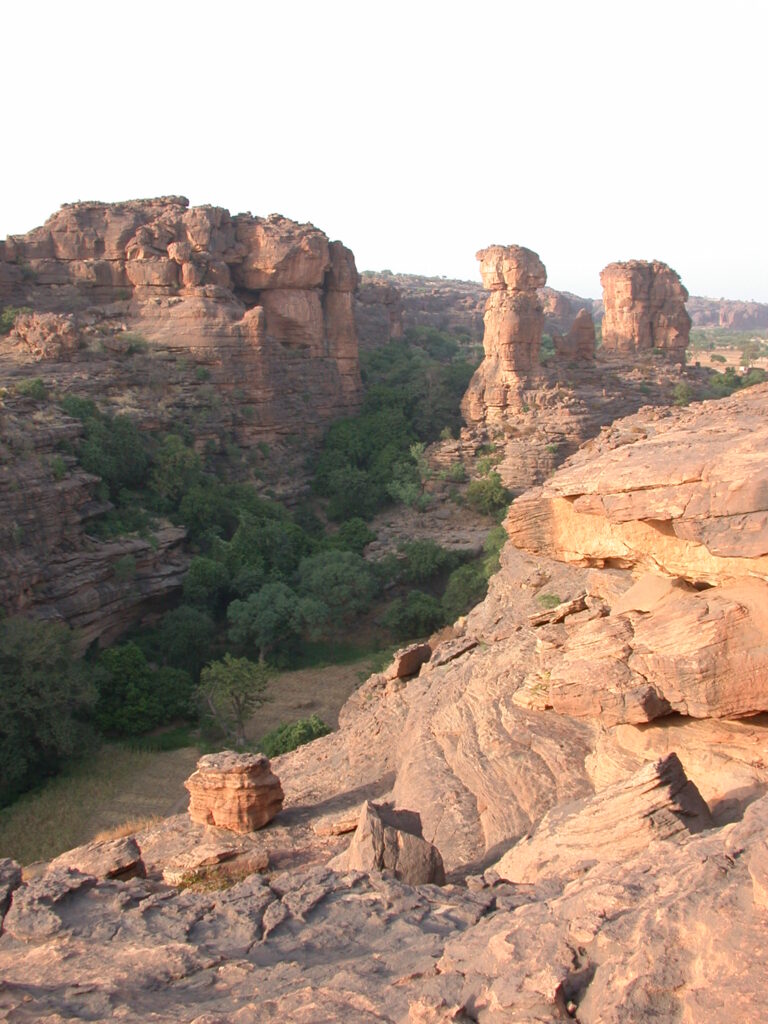
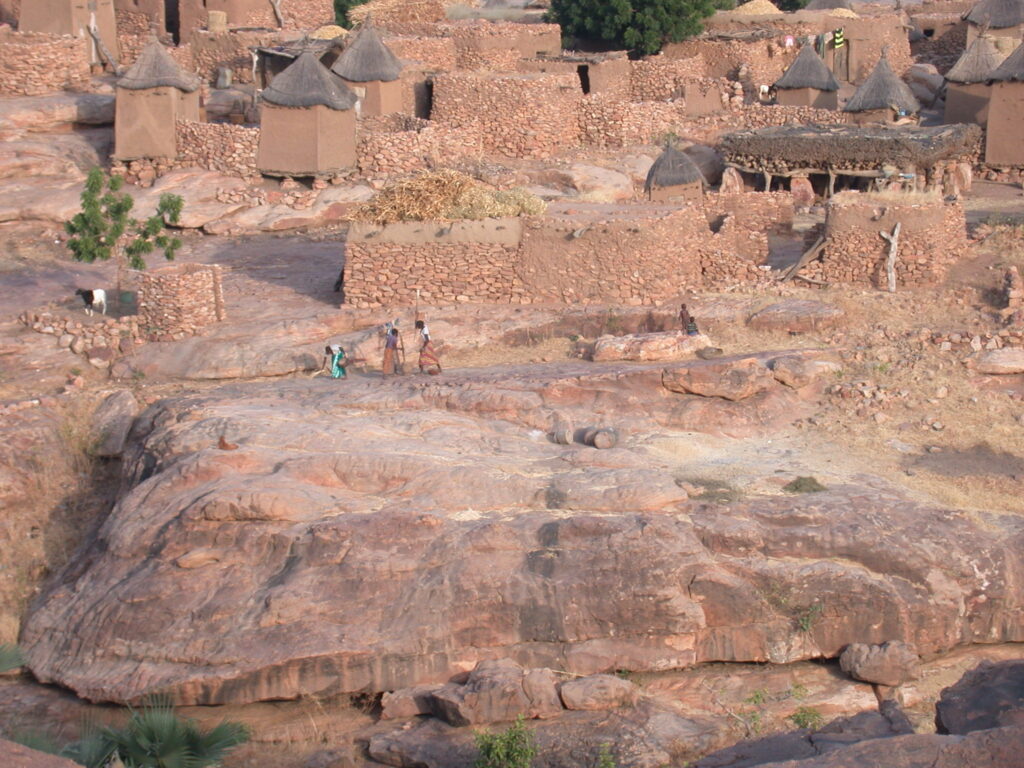
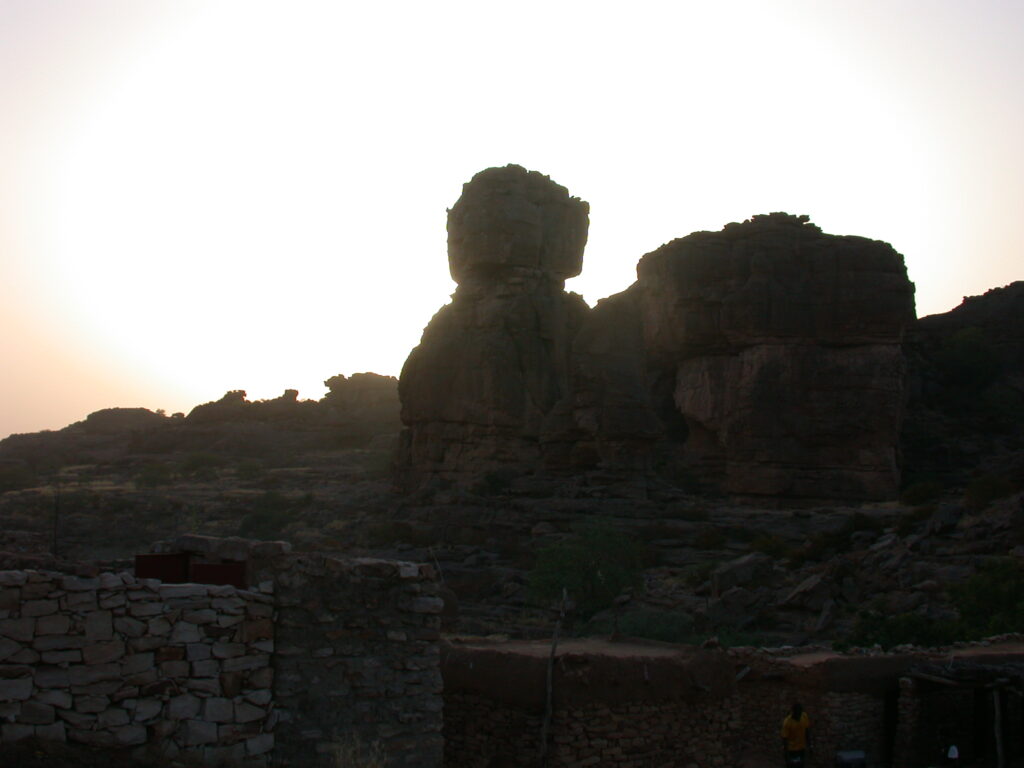
He and/or the other guide tried to keep me from hanging out with David and Annemarie but I was lonely for English chatter and we had some really good conversations. Their guide even ended up telling us a strange story about three sons of an early human ancestor, Arab, black, and Toubab (or white, including Chinese and perhaps also Indian?). In the story, the father dies and the mother is worried about who will continue the family. She asks each of her sons, but the Arab son is not friendly with his brothers. She says the black son is doomed to endless toil and the Toubab son seems to get off easy. After thinking about it all night, I discussed the story with the guide again the next morning and told him I didn’t like the story or its implications. It reminded me a bit of the story of the lost Israeli tribe of Ham. He and I agreed that black Africans shouldn’t subordinate themselves to other people and that European and American colonial policies had to end and Africans have to take control of the resources of their own countries.
After the 2km hike out of Dogon country, we met the same taxi that had dropped us off a few days before in another location. He played some music by Tikken Jah Fakoly (pronounced “Chicken”), a Malian reggae performer, that made me cry, a song called “Ils ont partagé le monde” (“They have divided up the world”) about how the U.S. and Britain have taken and divided up the spoils of everything in the world.
After some worries on my part about whether Chicago was going to press me for more cash, I was glad that he didn’t seem worried about it and I even gave him a bit of a tip once we arrived in Sevaré. He helped me check in to the hotel there, then went on his way to Timbuktu, where we will perhaps meet again later on.
The Motel de Sevaré was basic, but felt like heaven with hot water showers! I left early the next morning, November 27, on the bus to Bamako.
